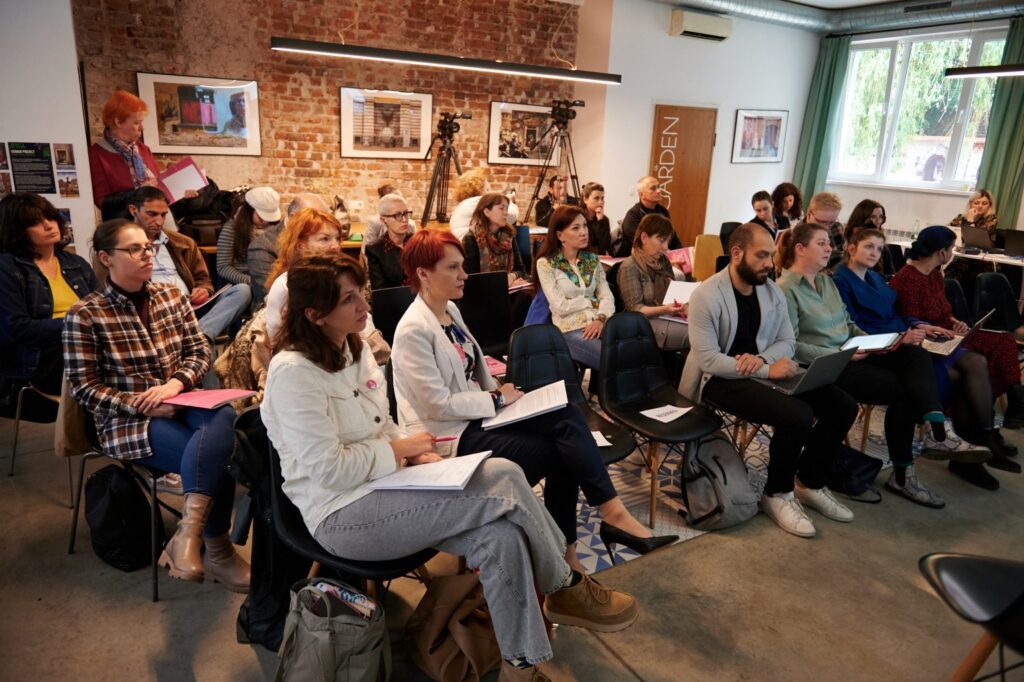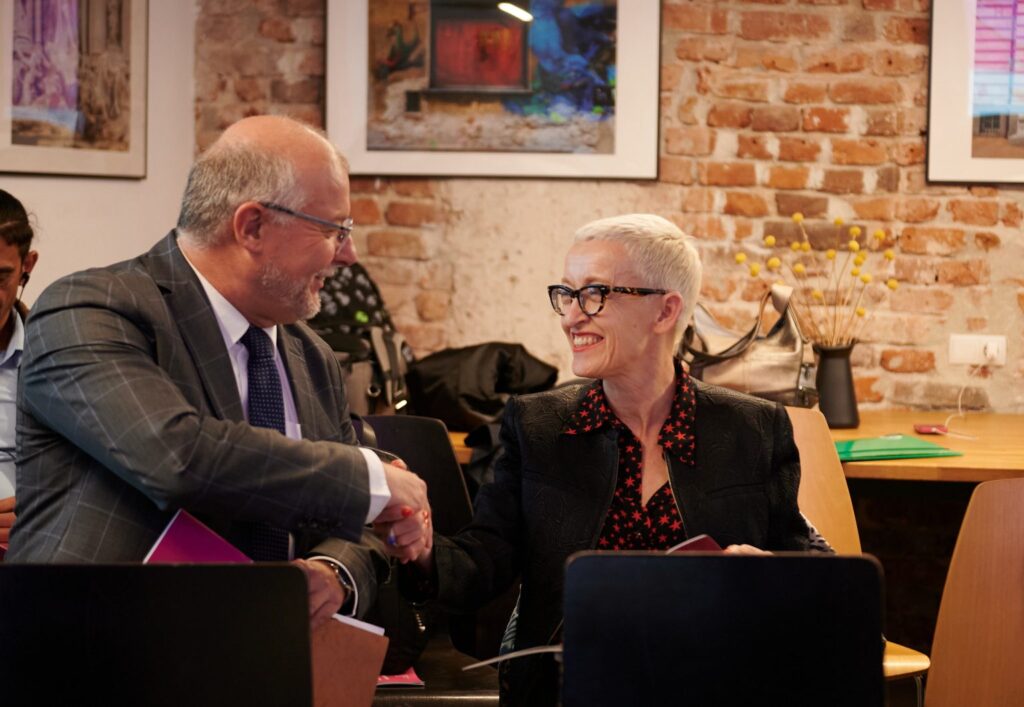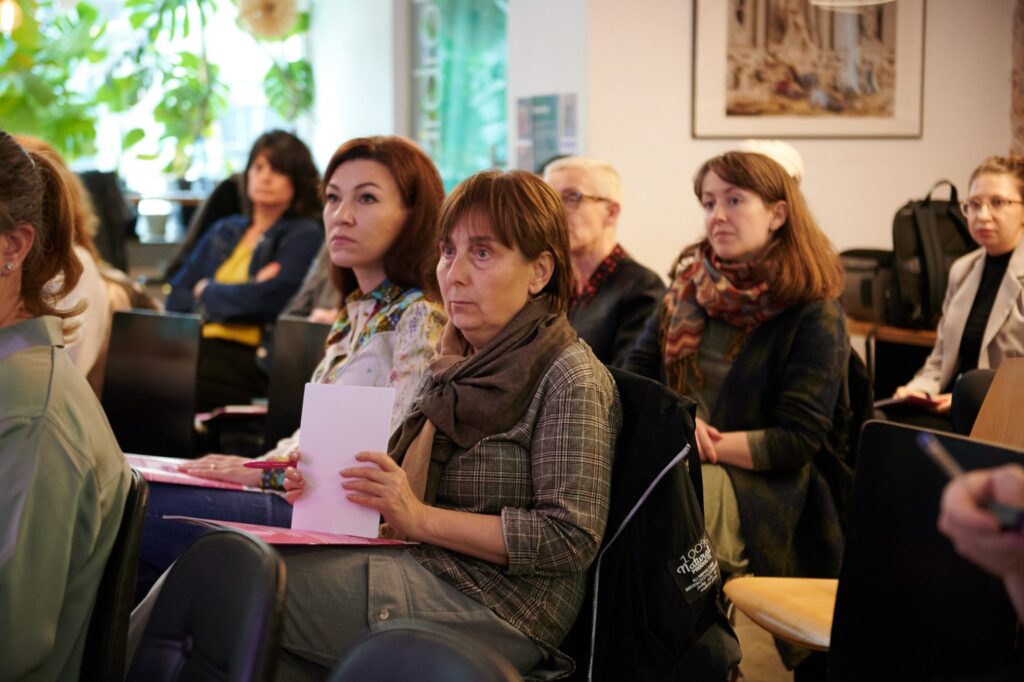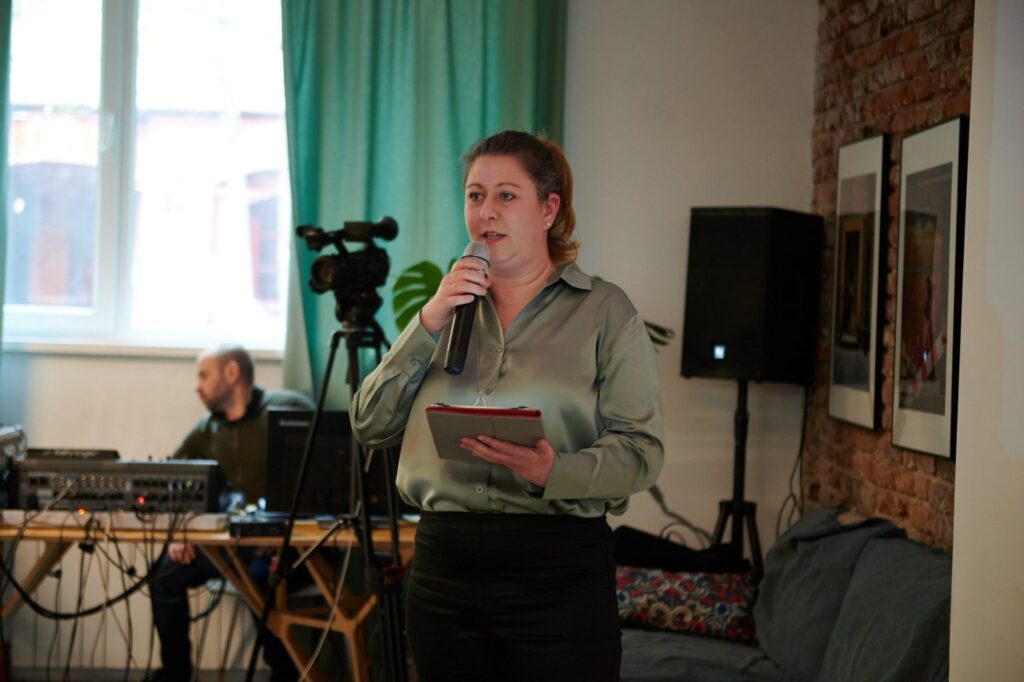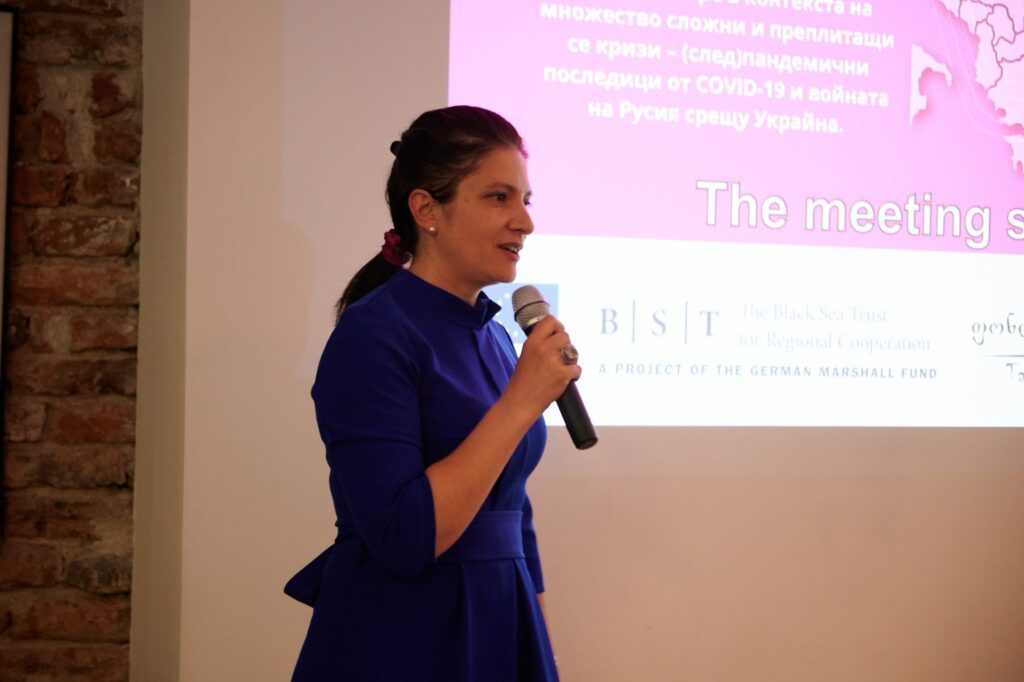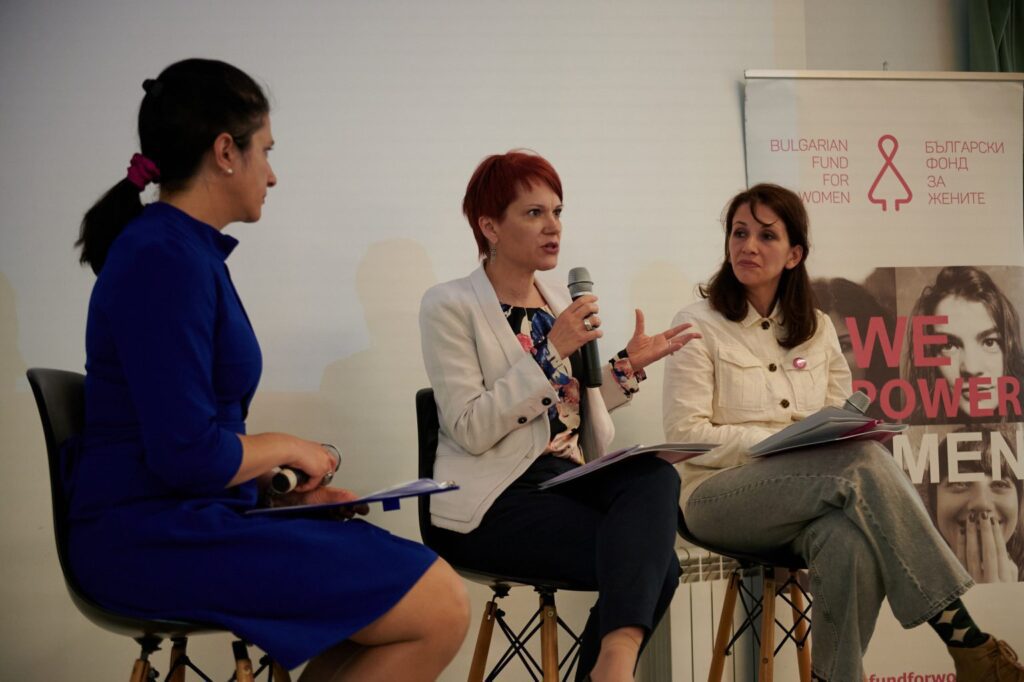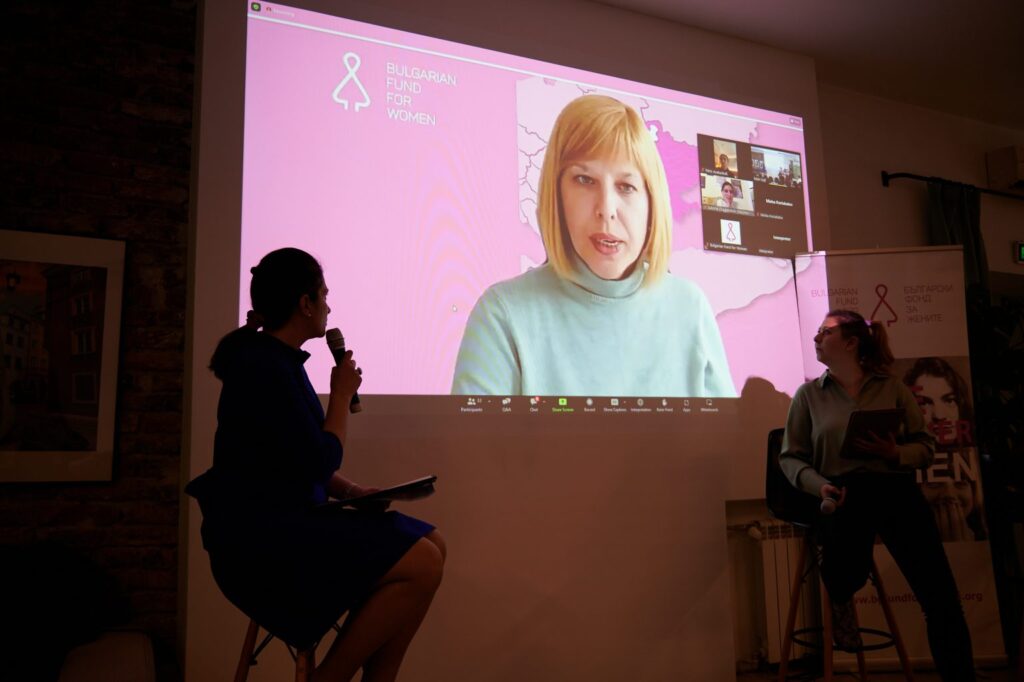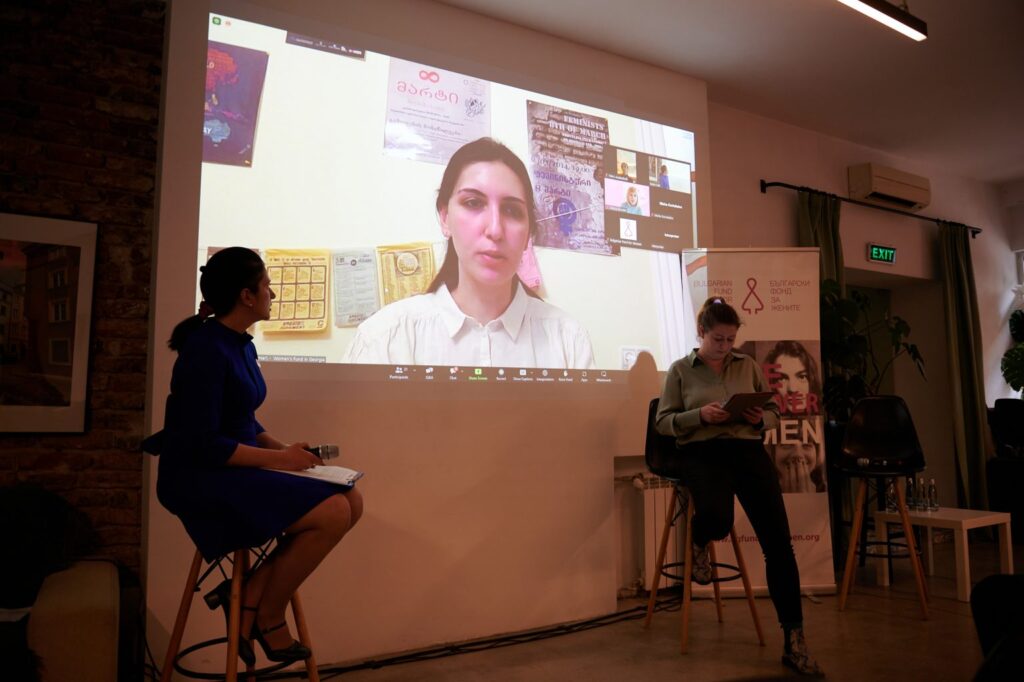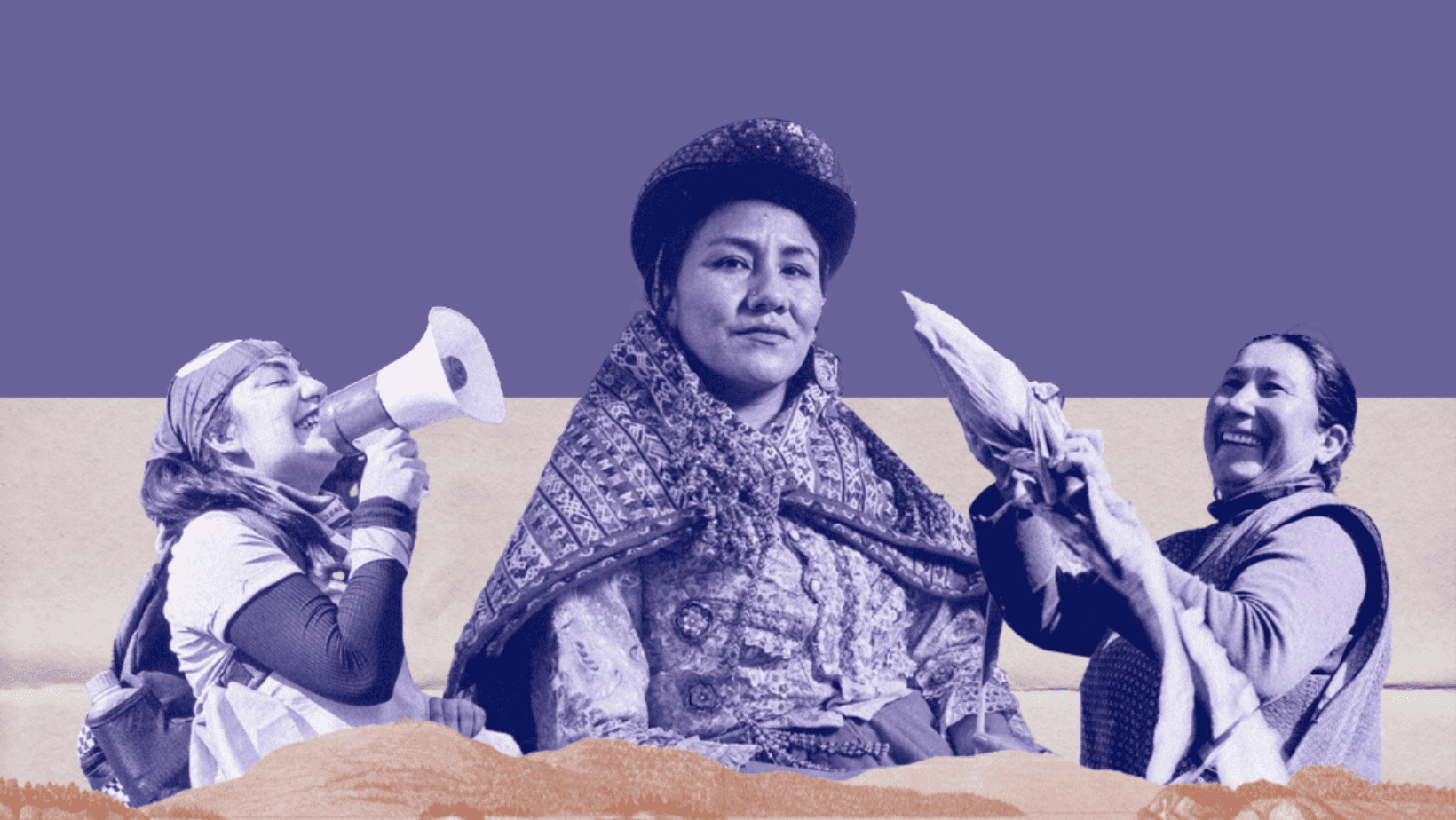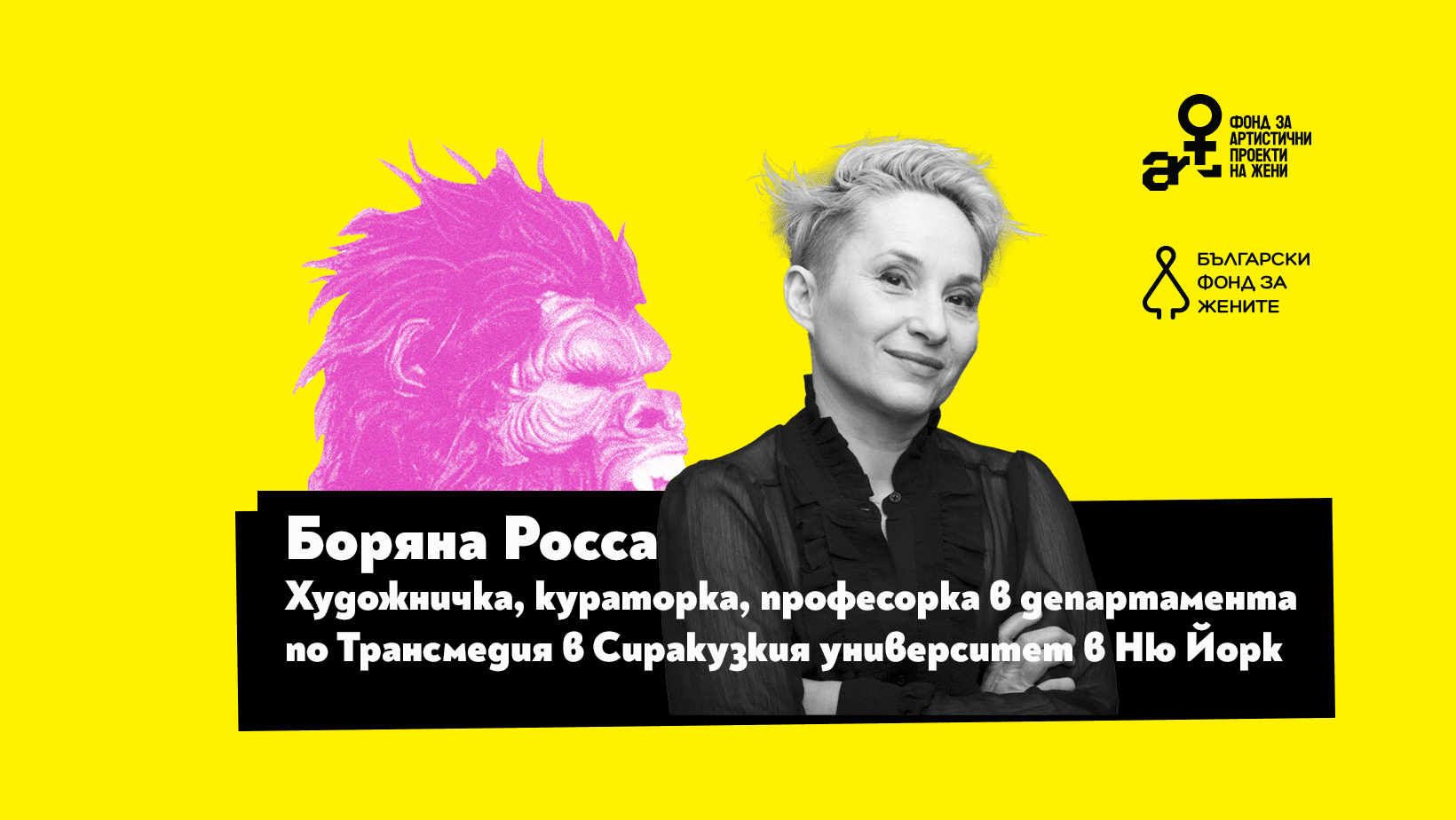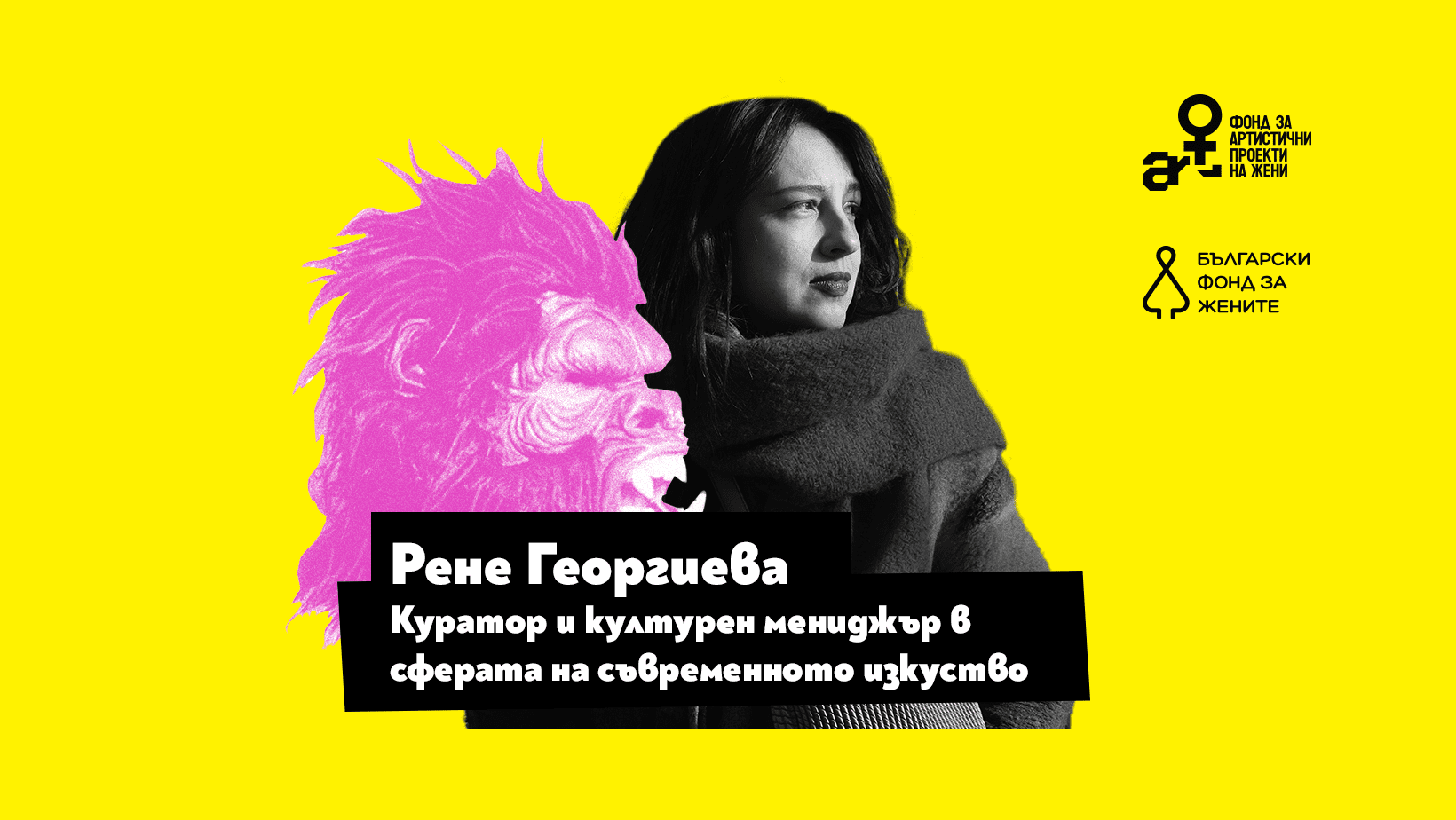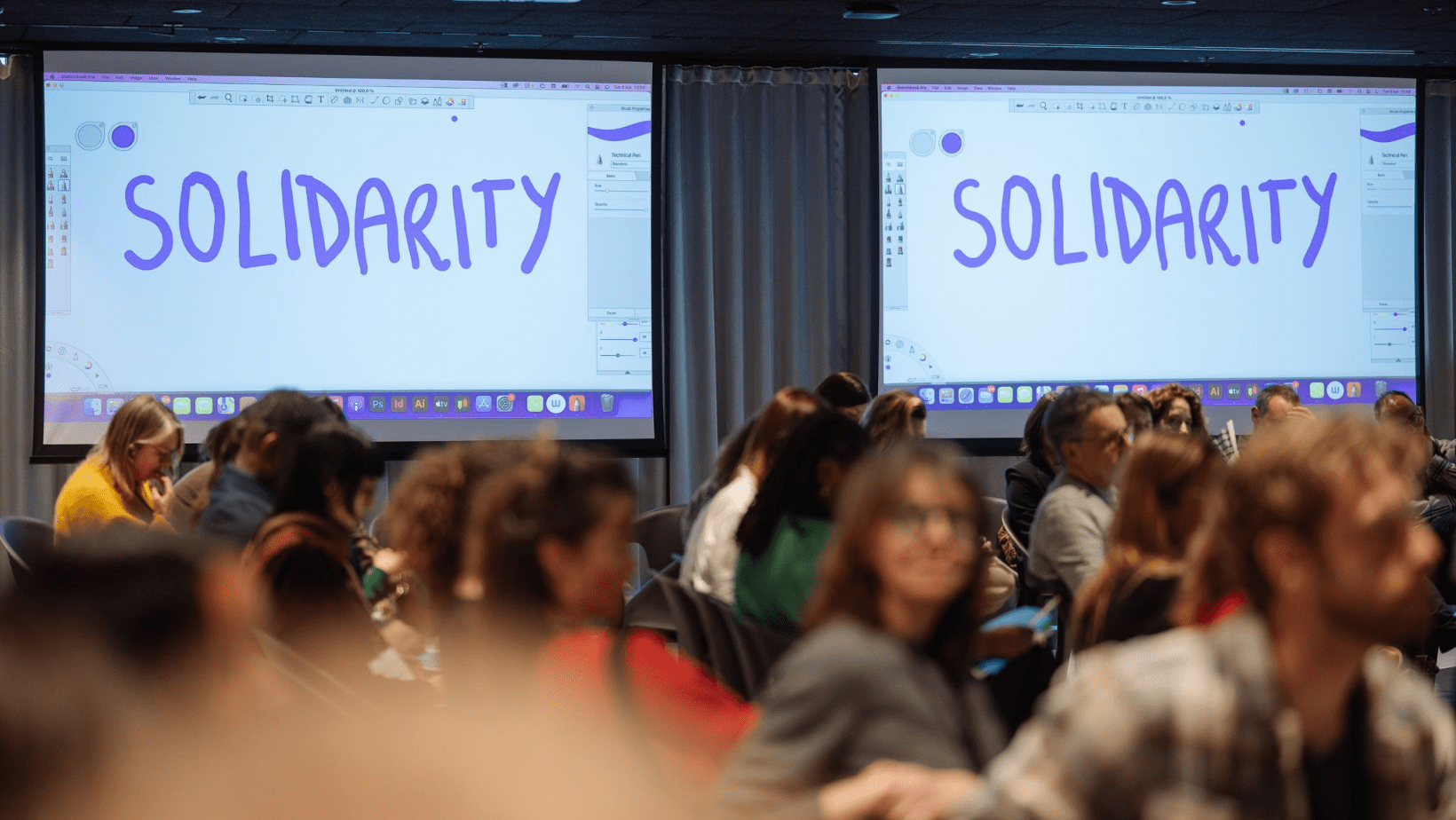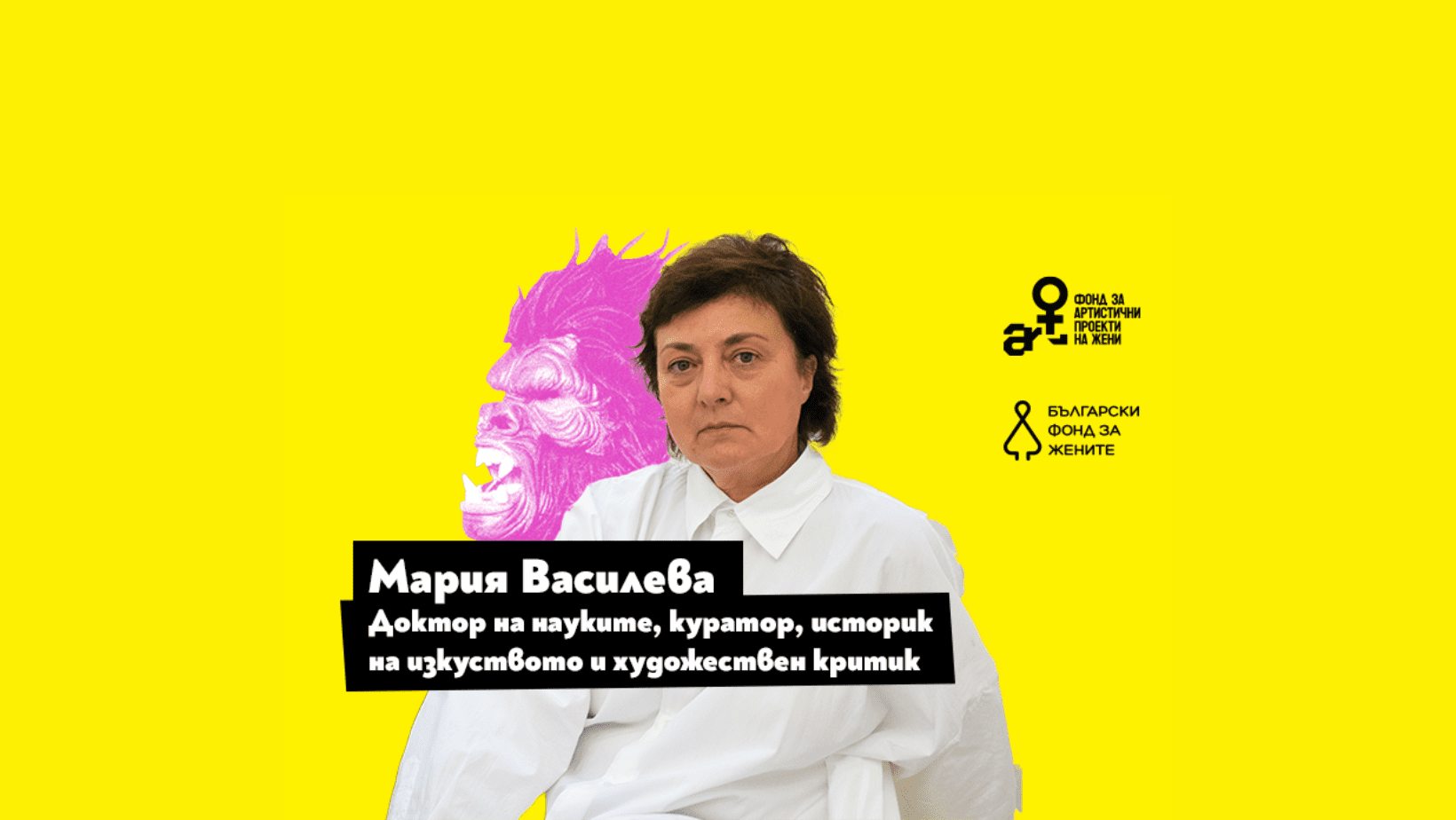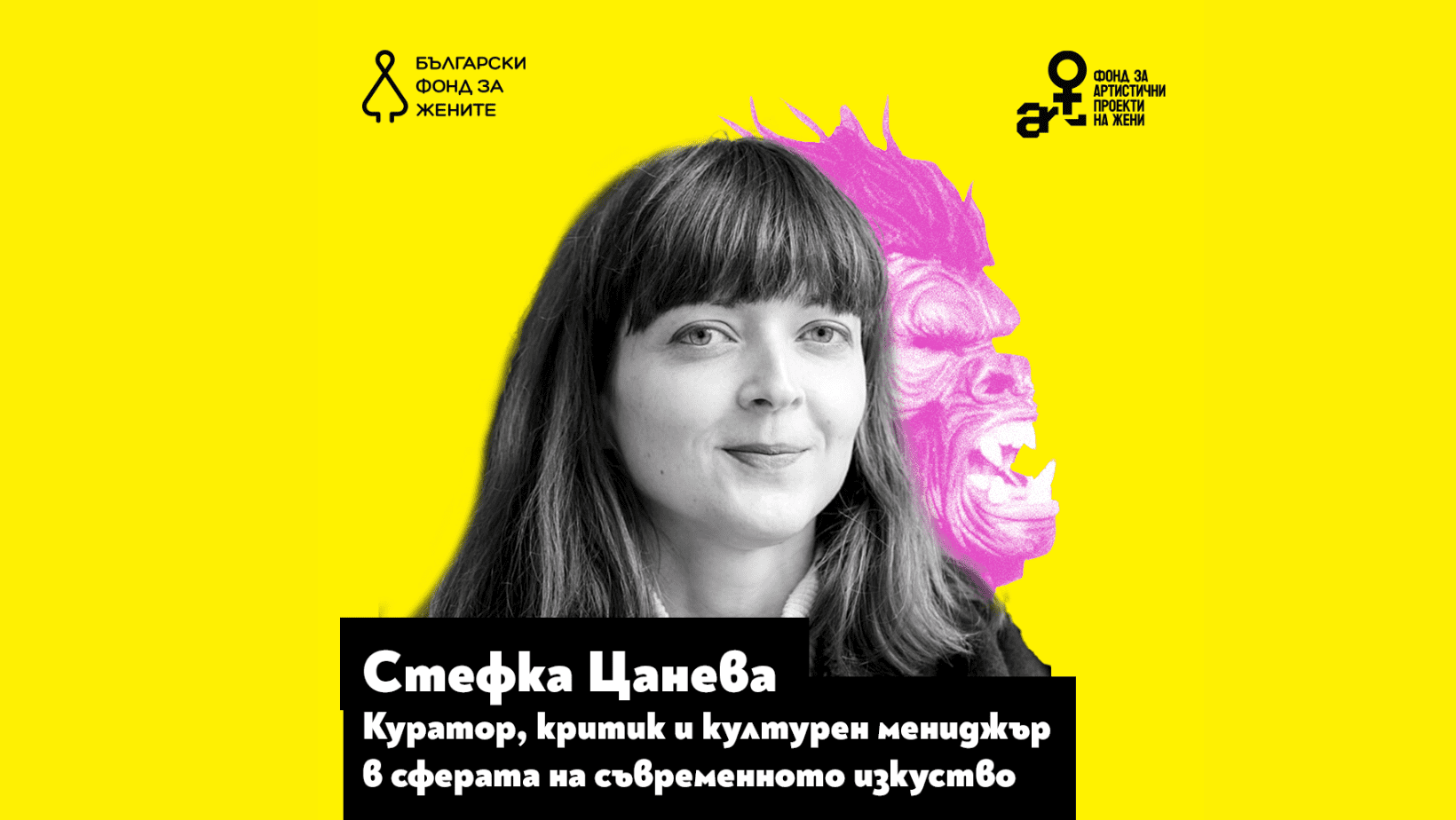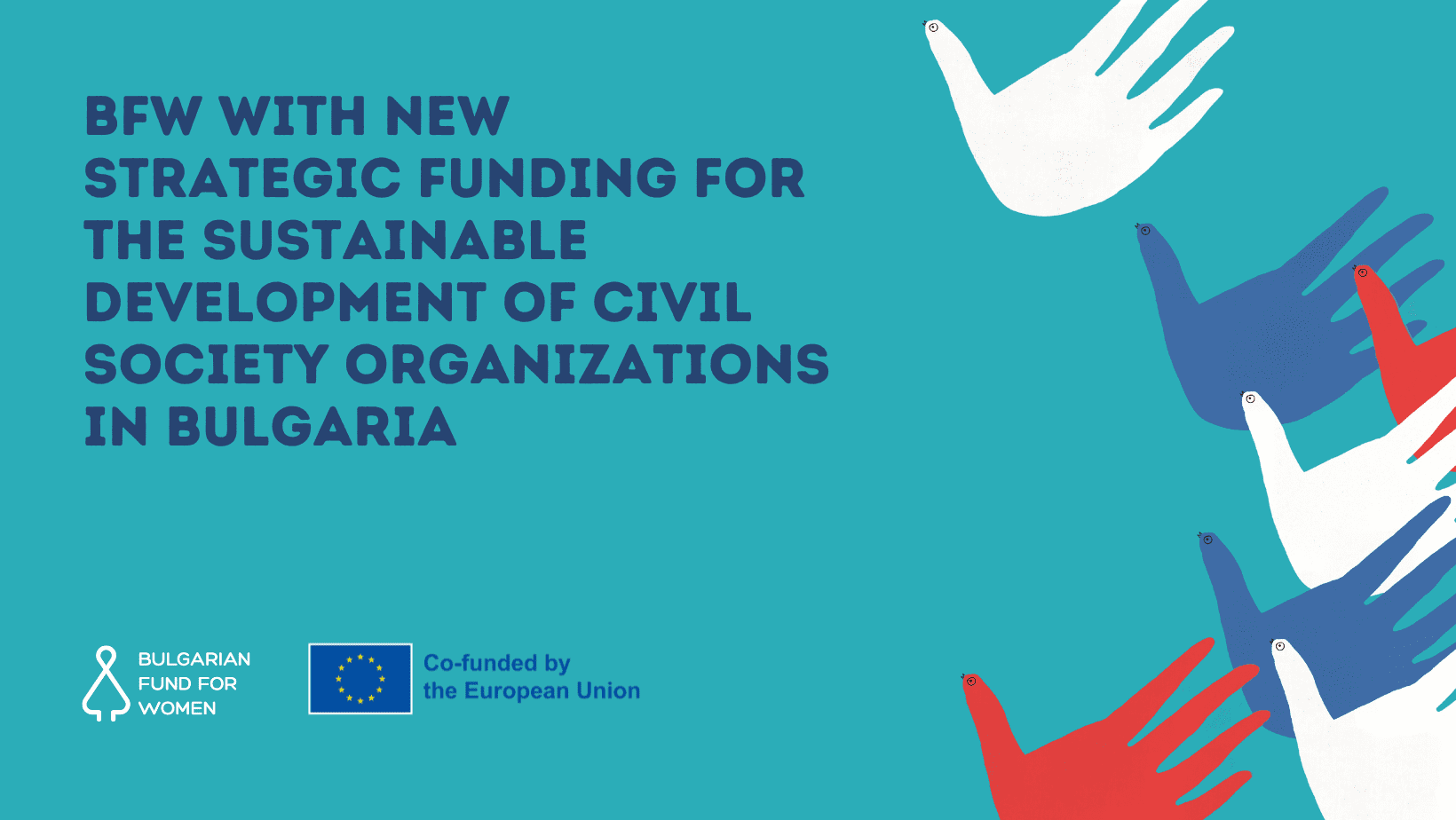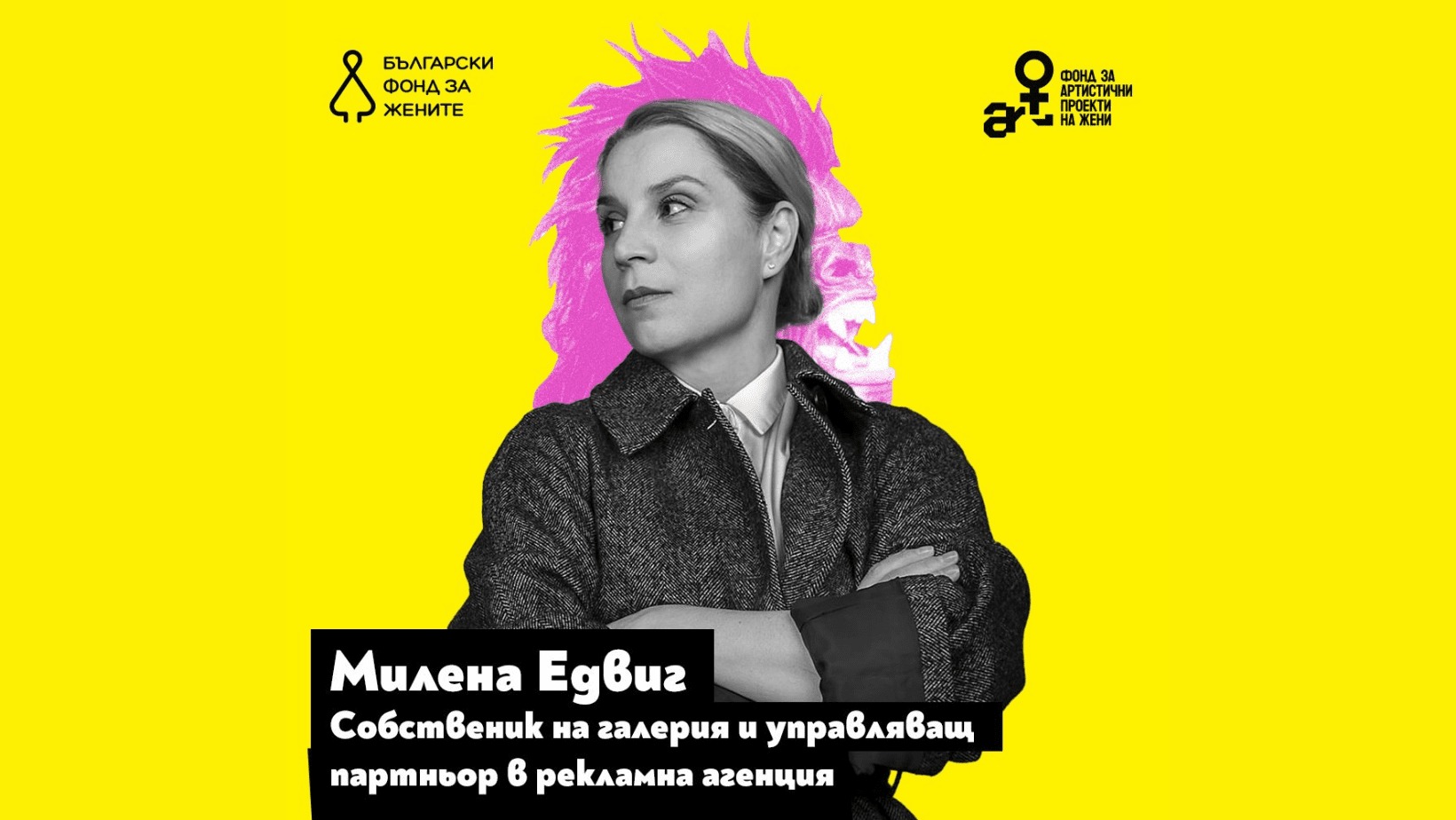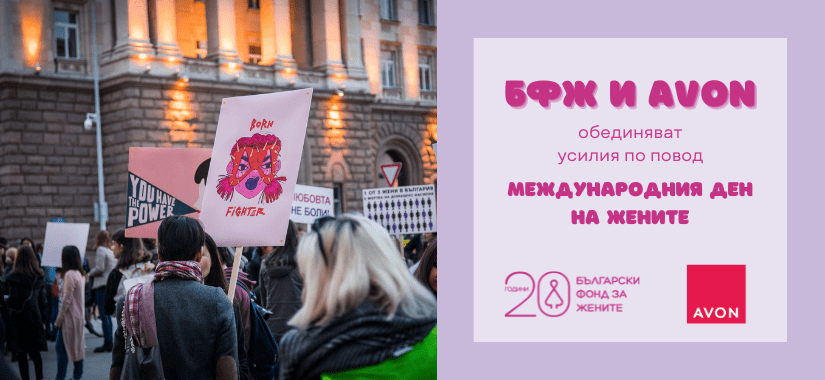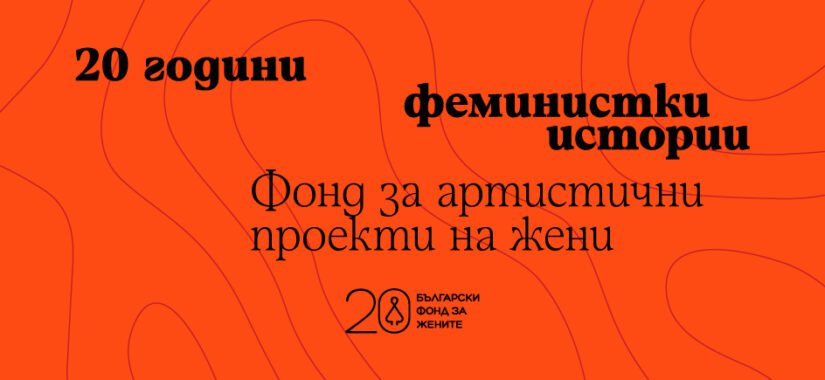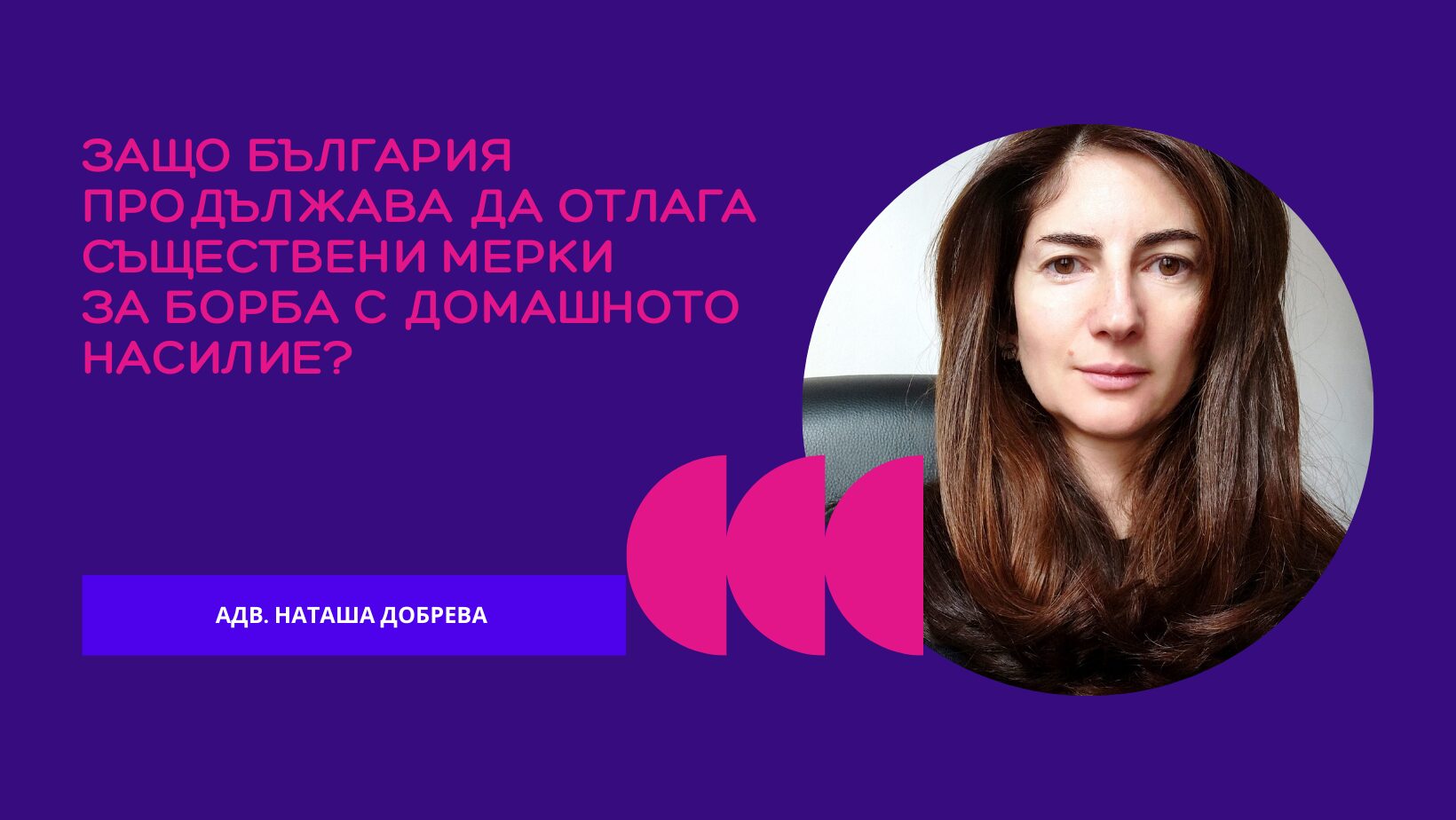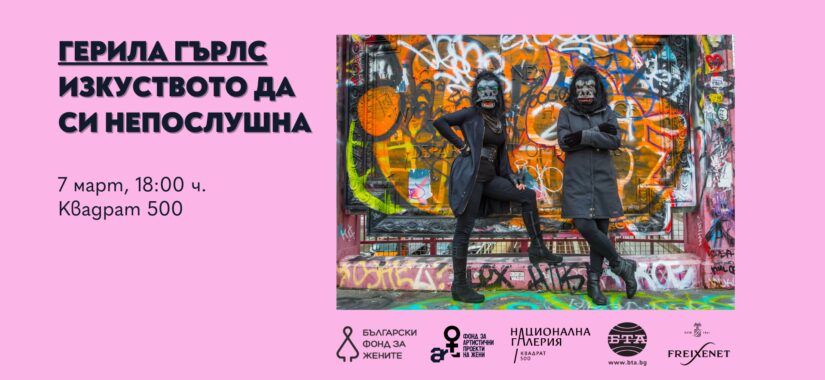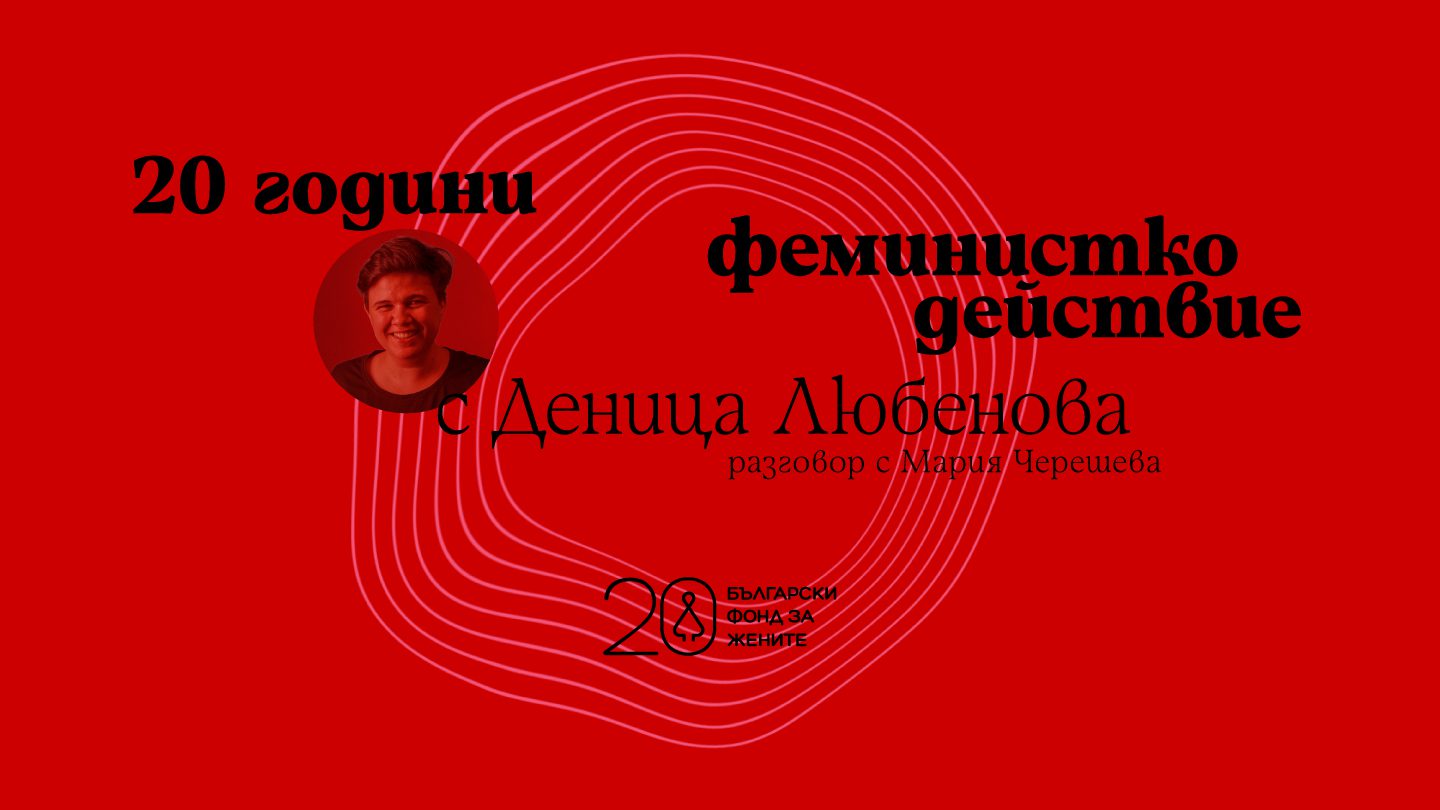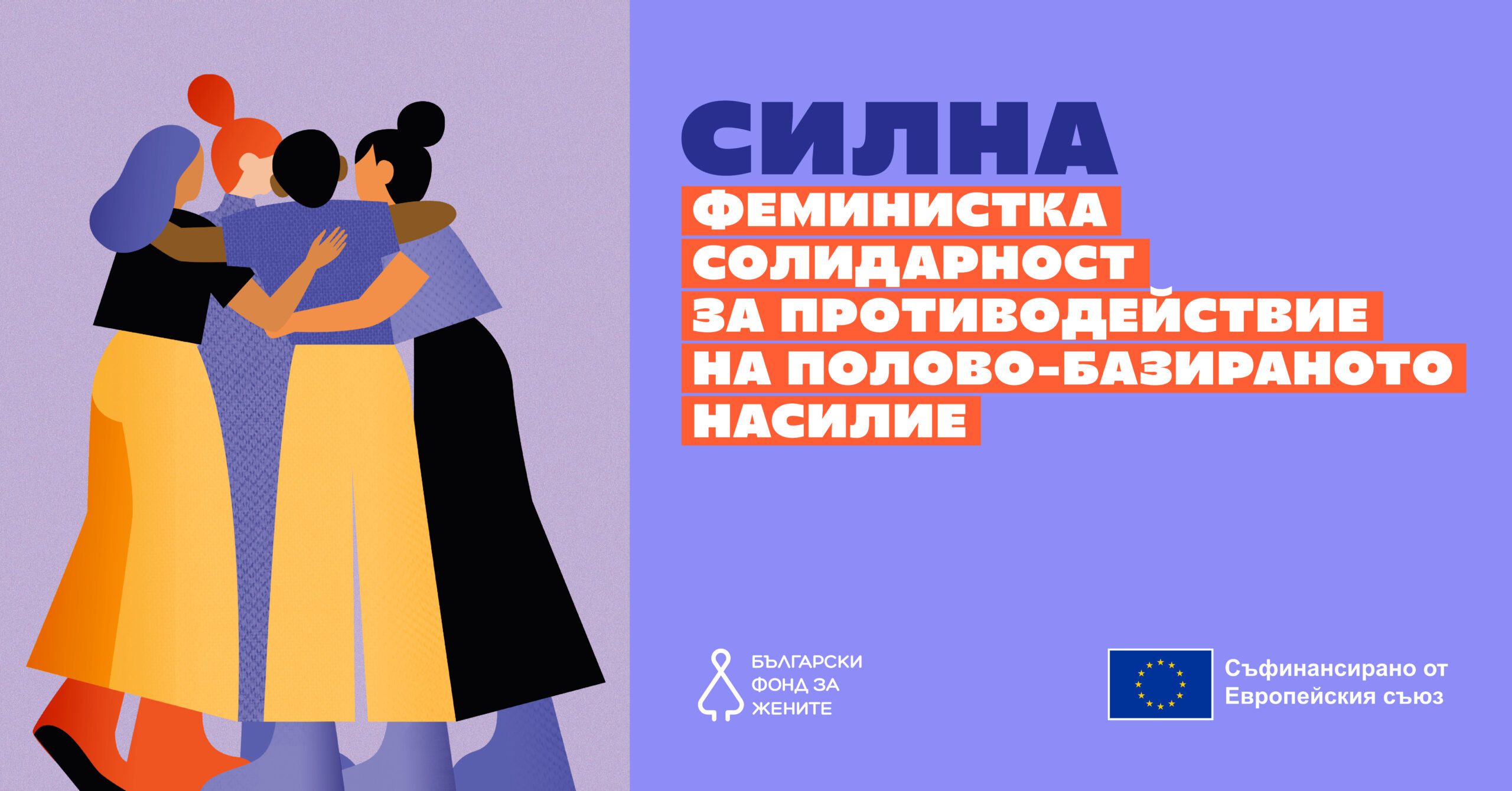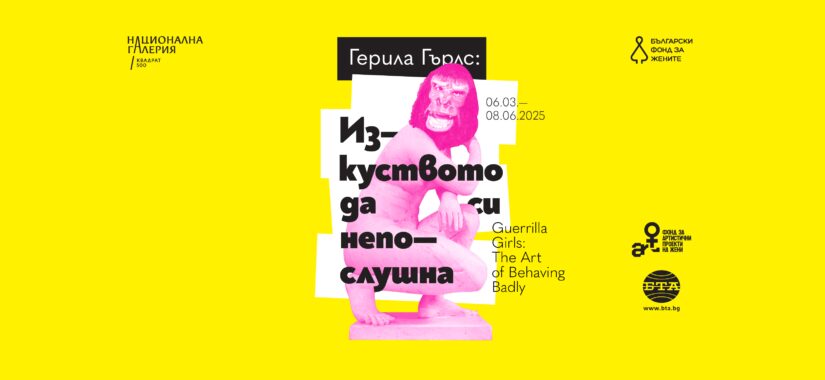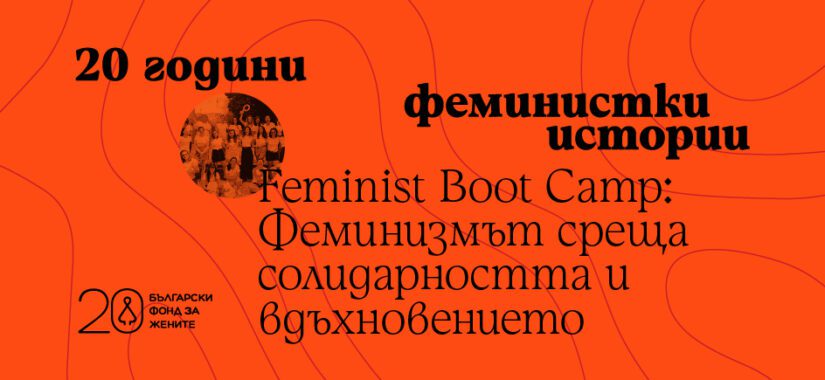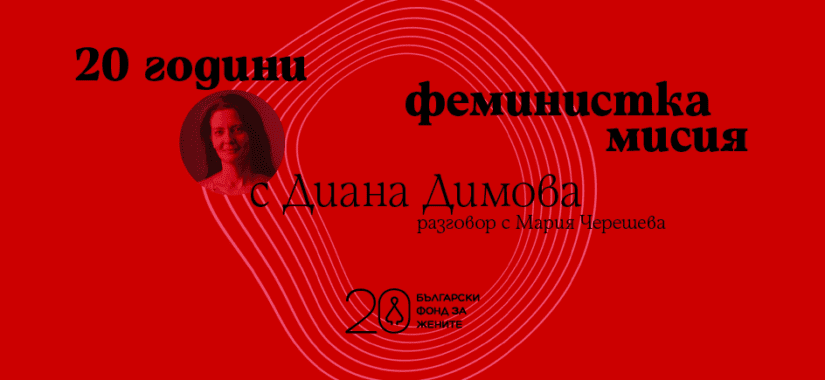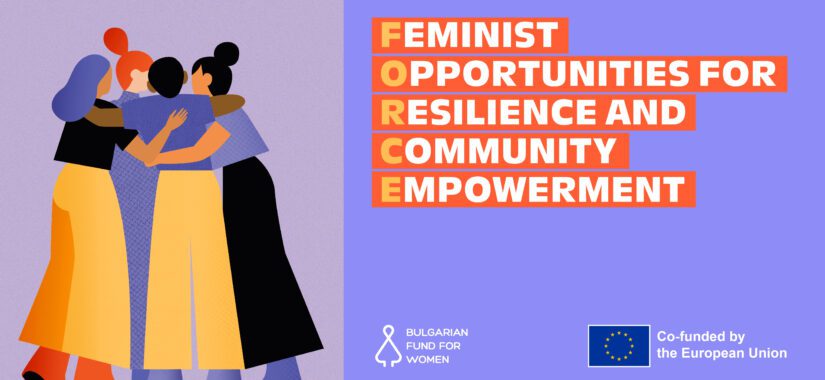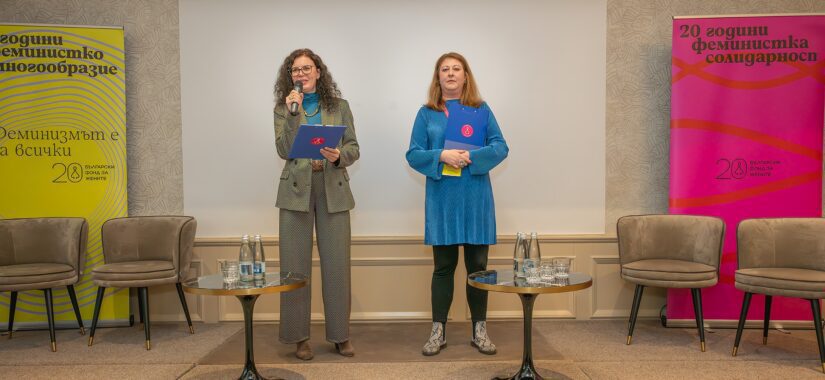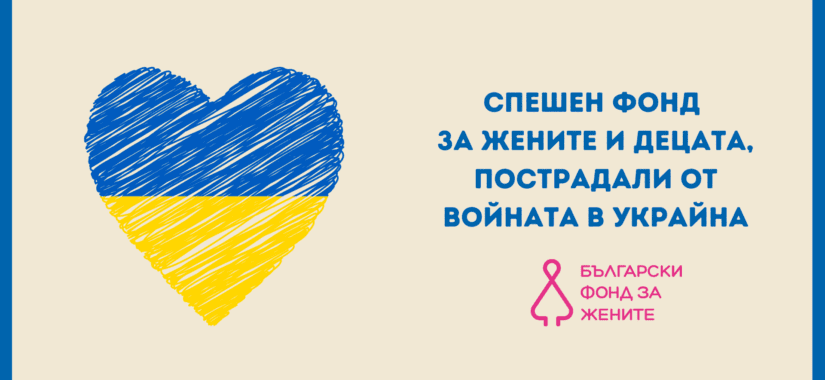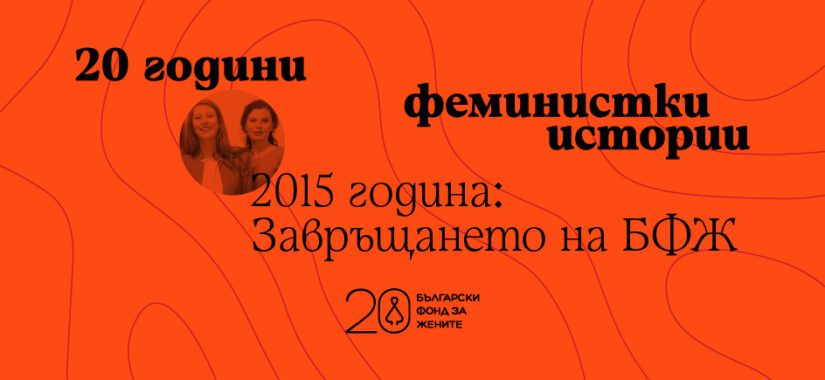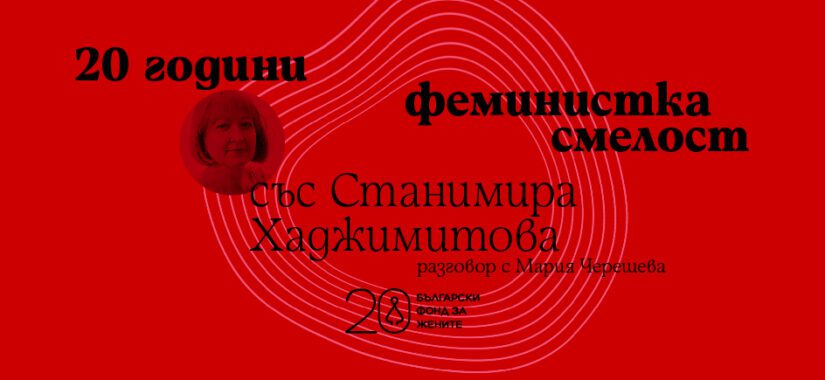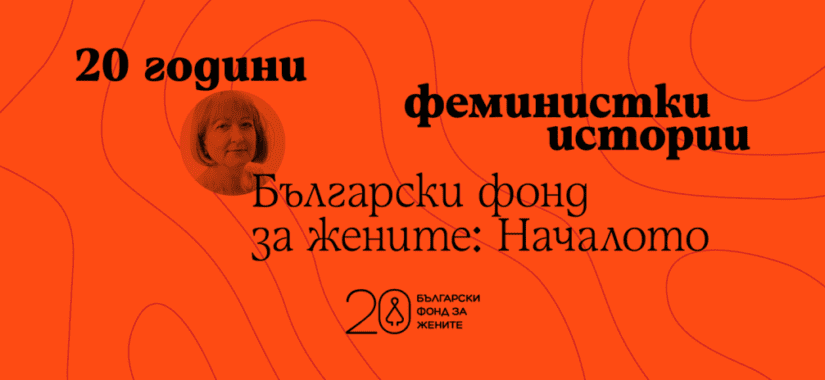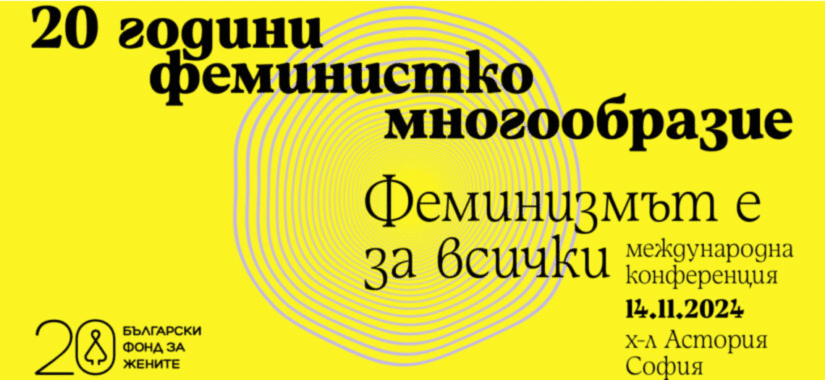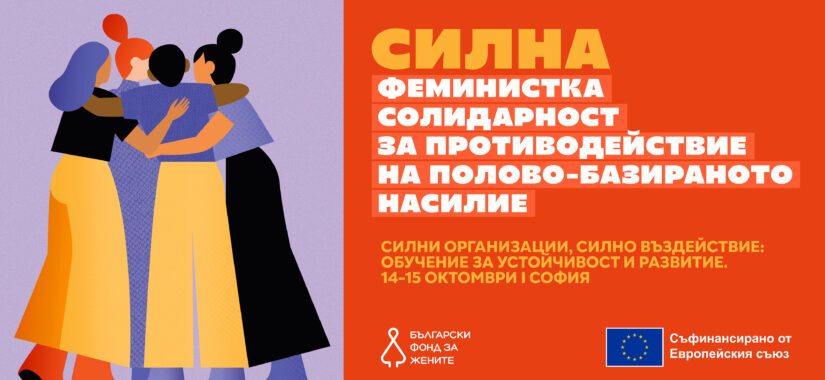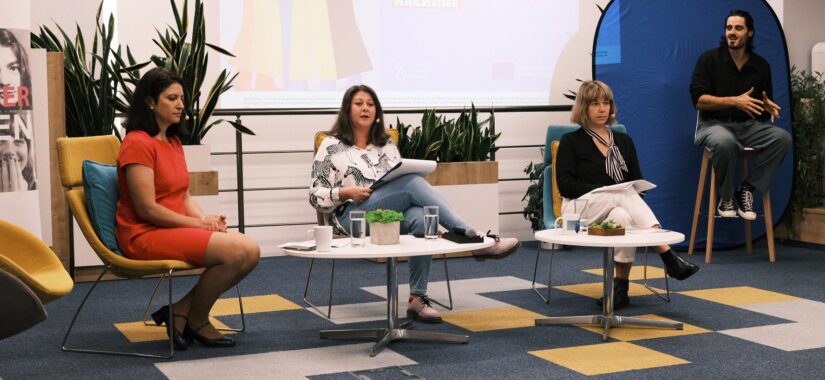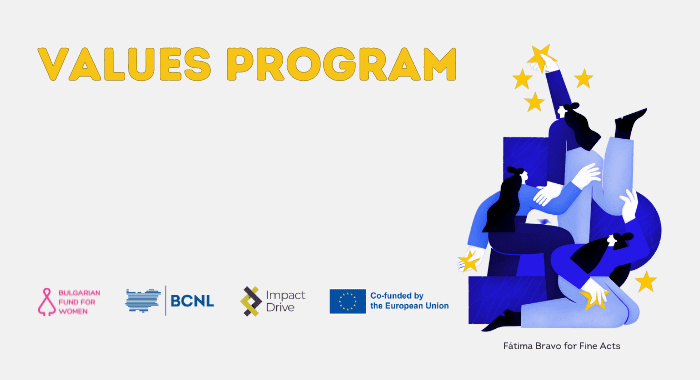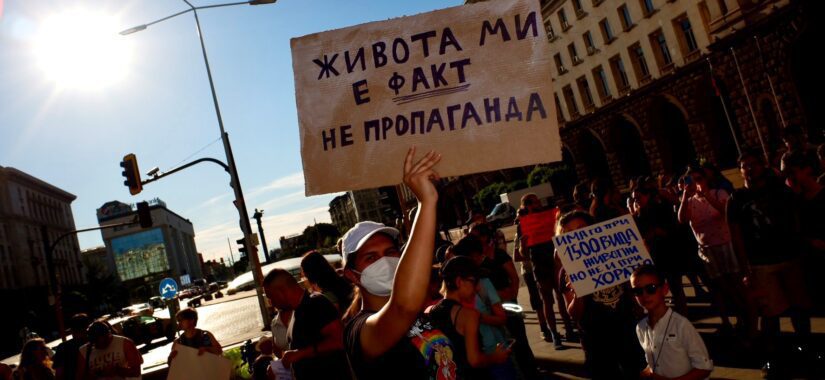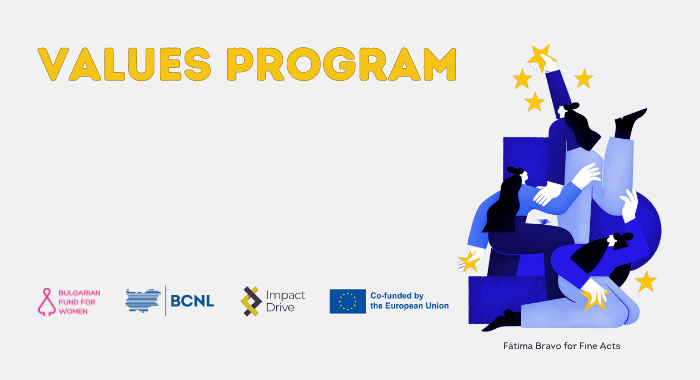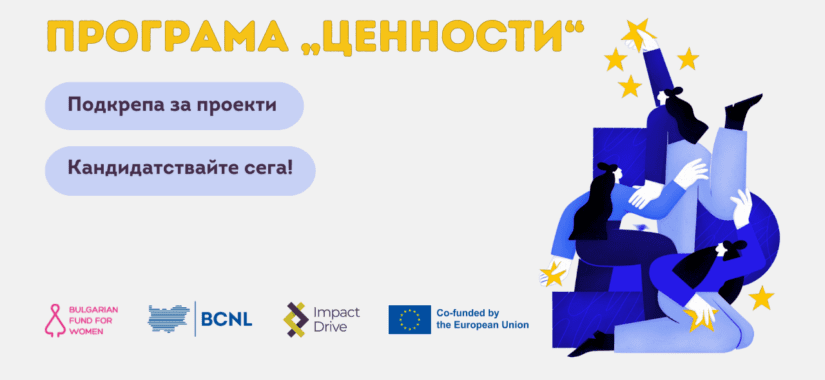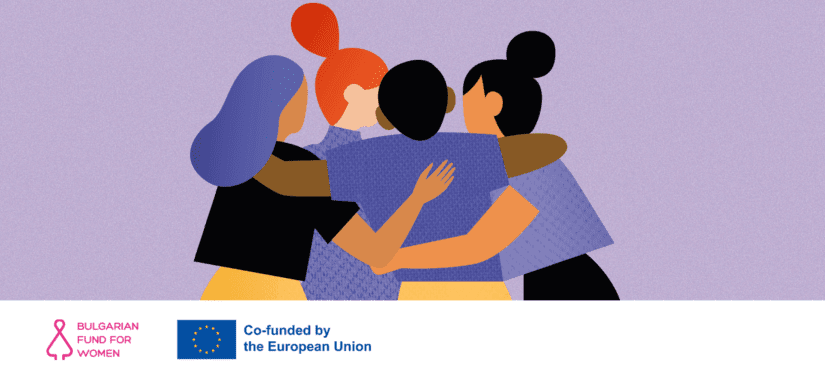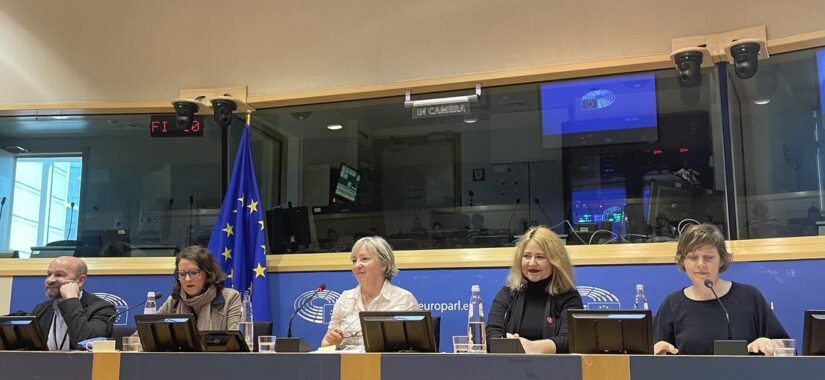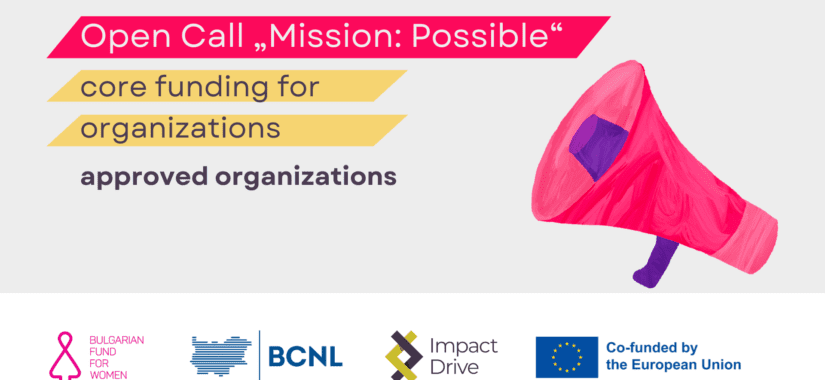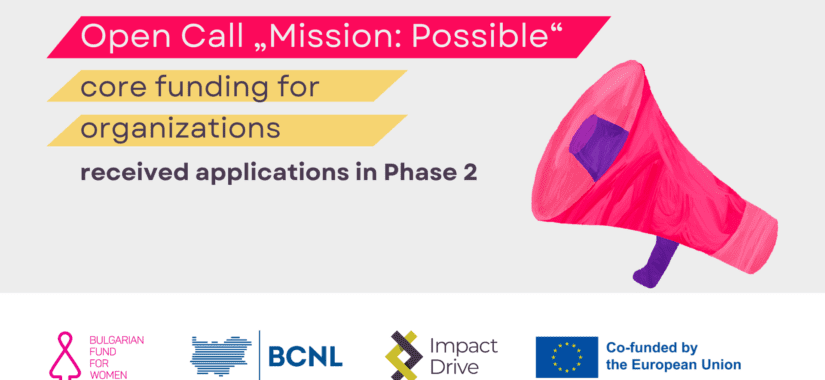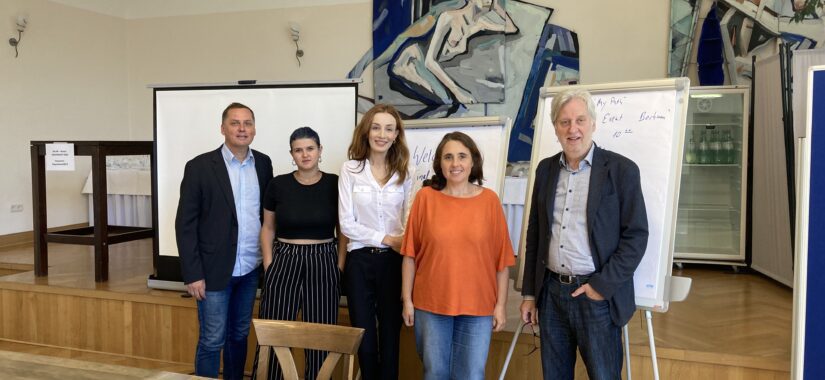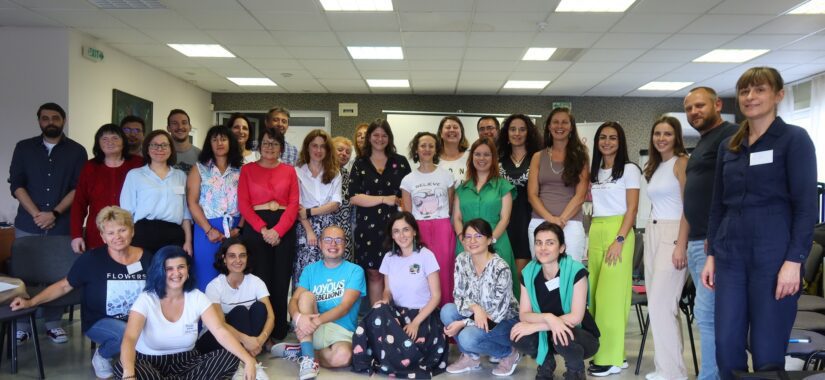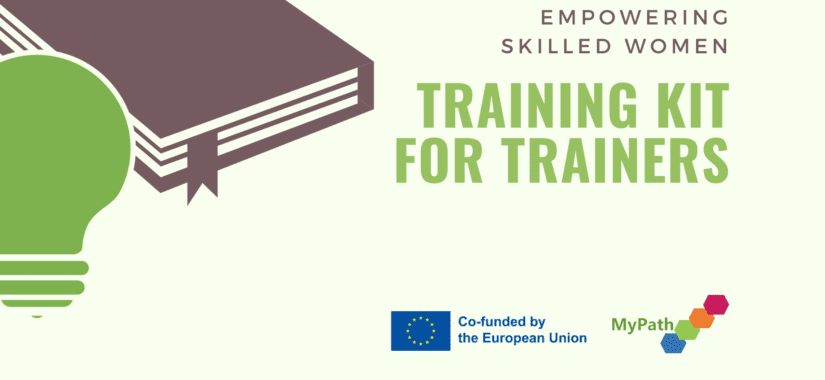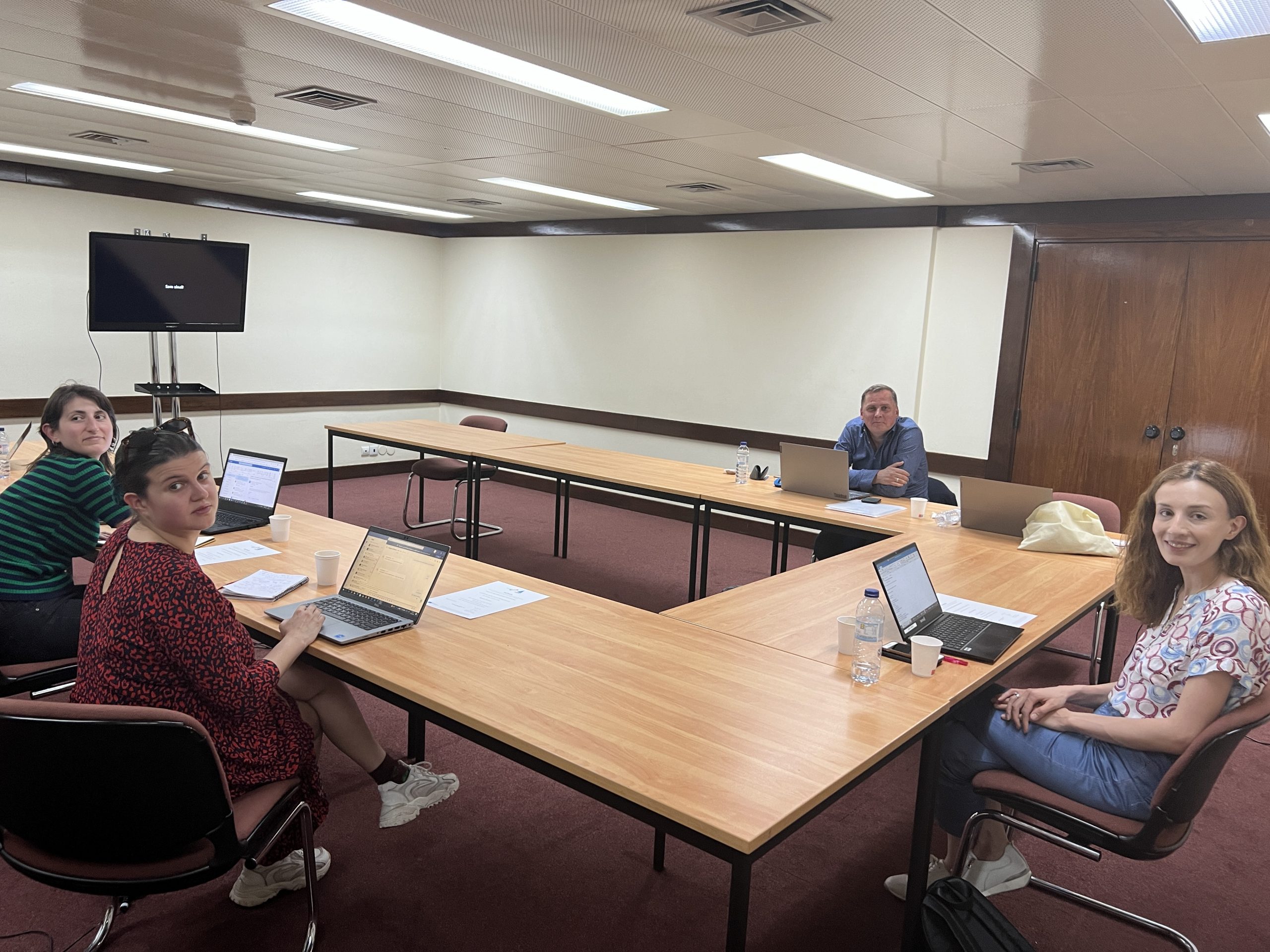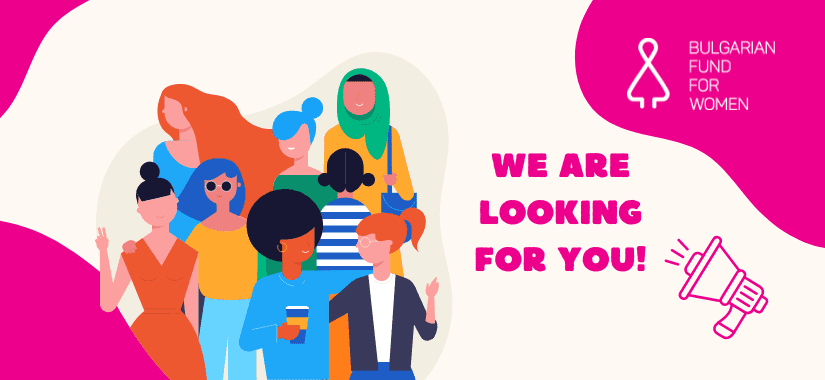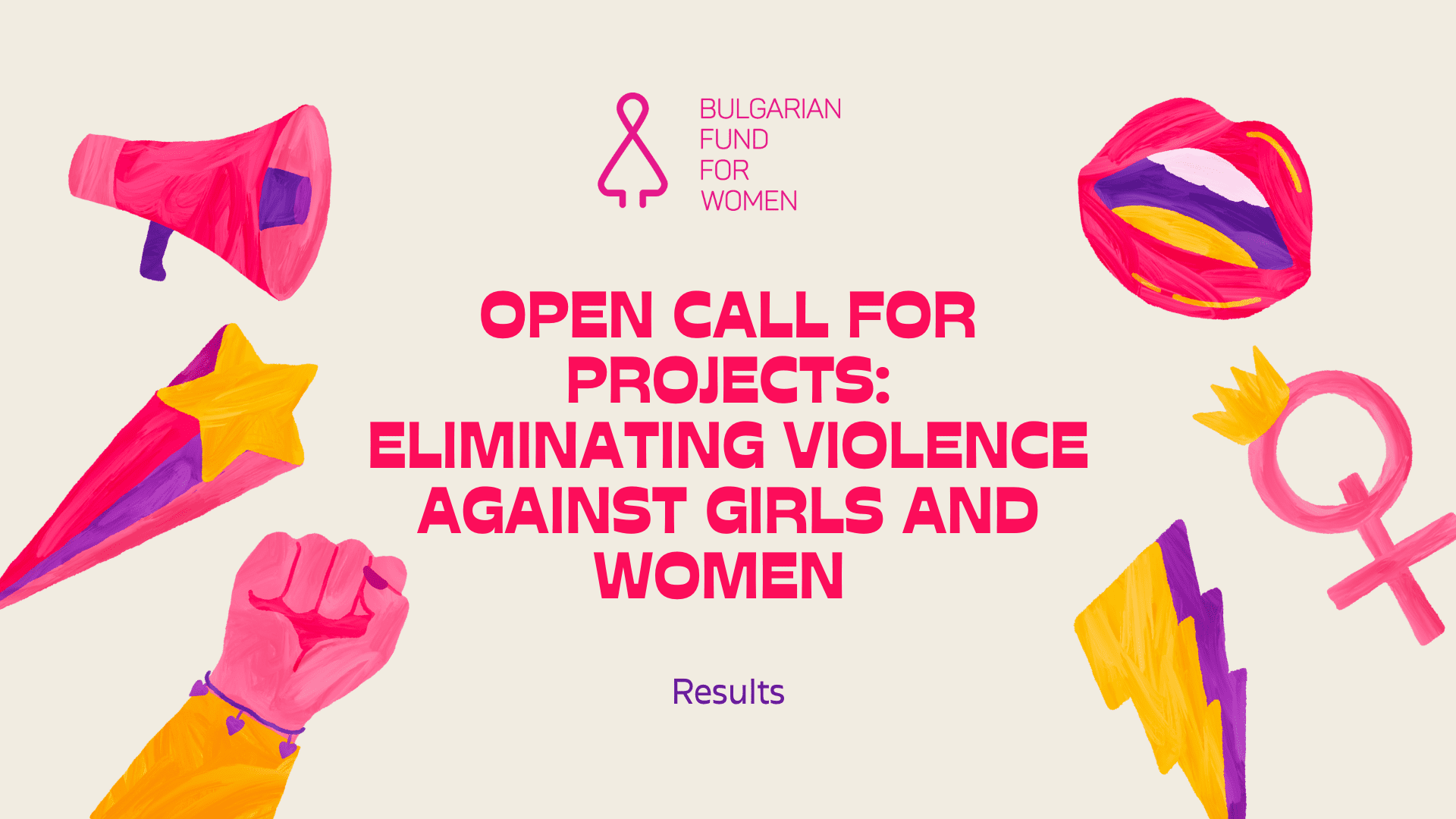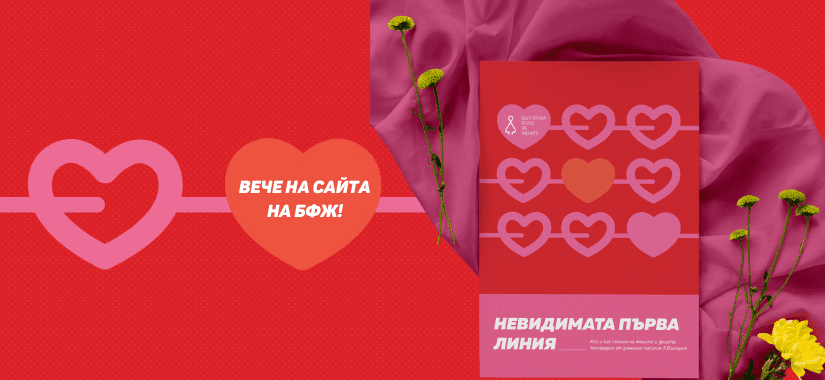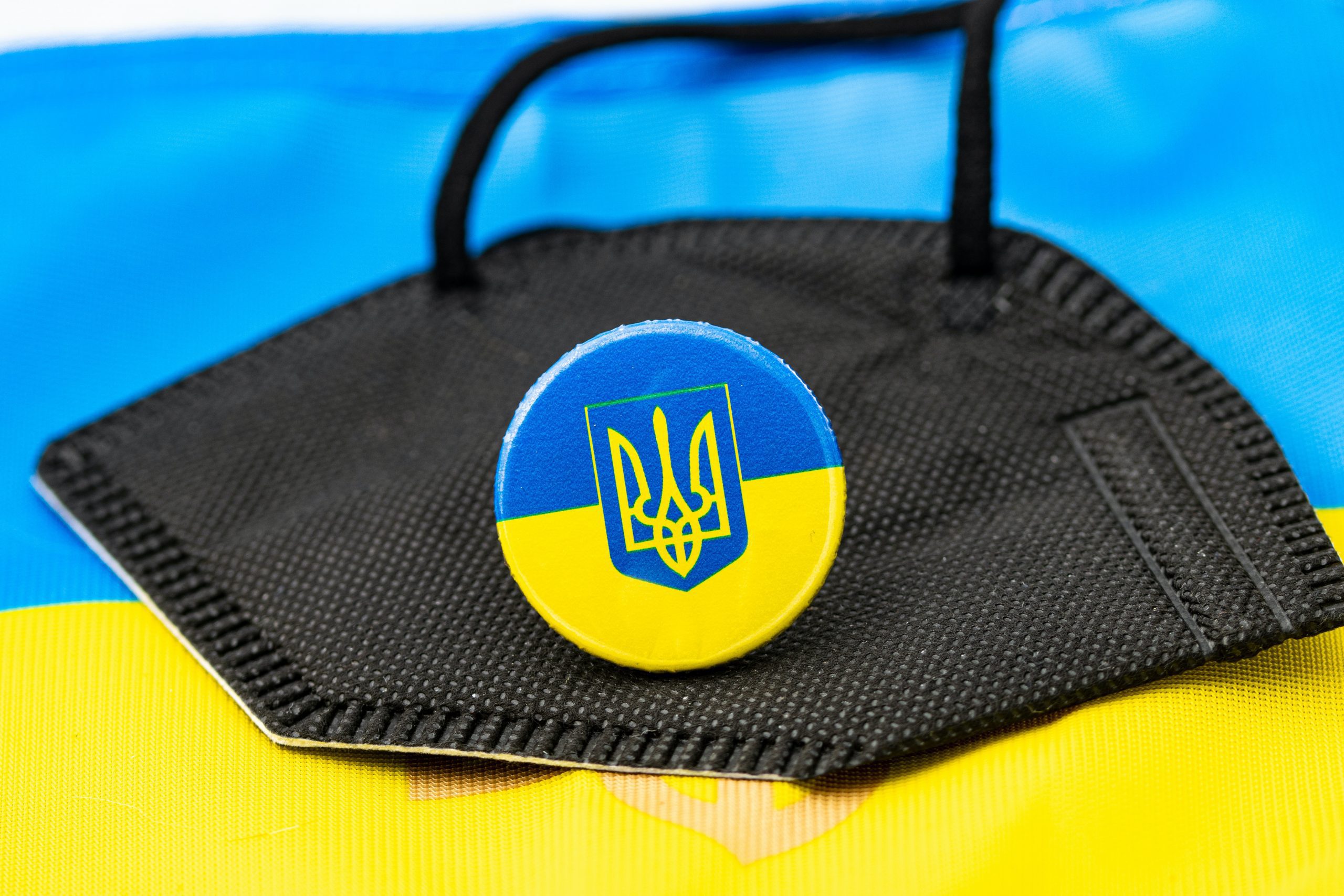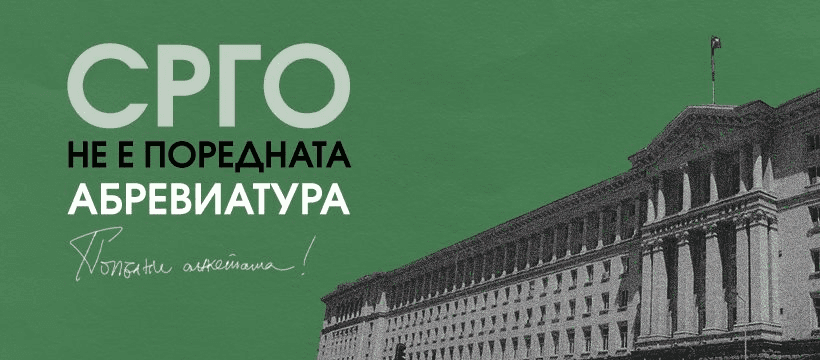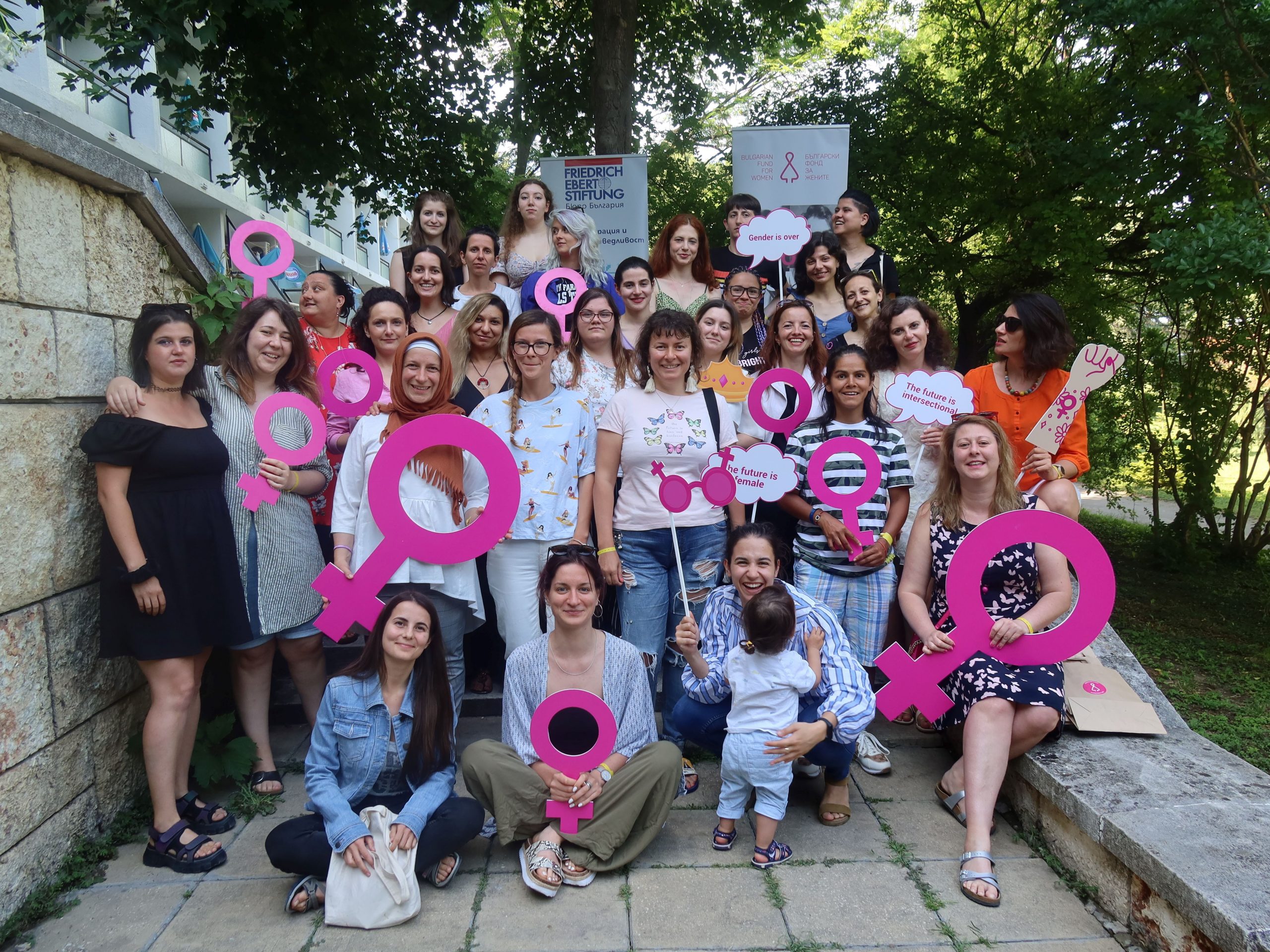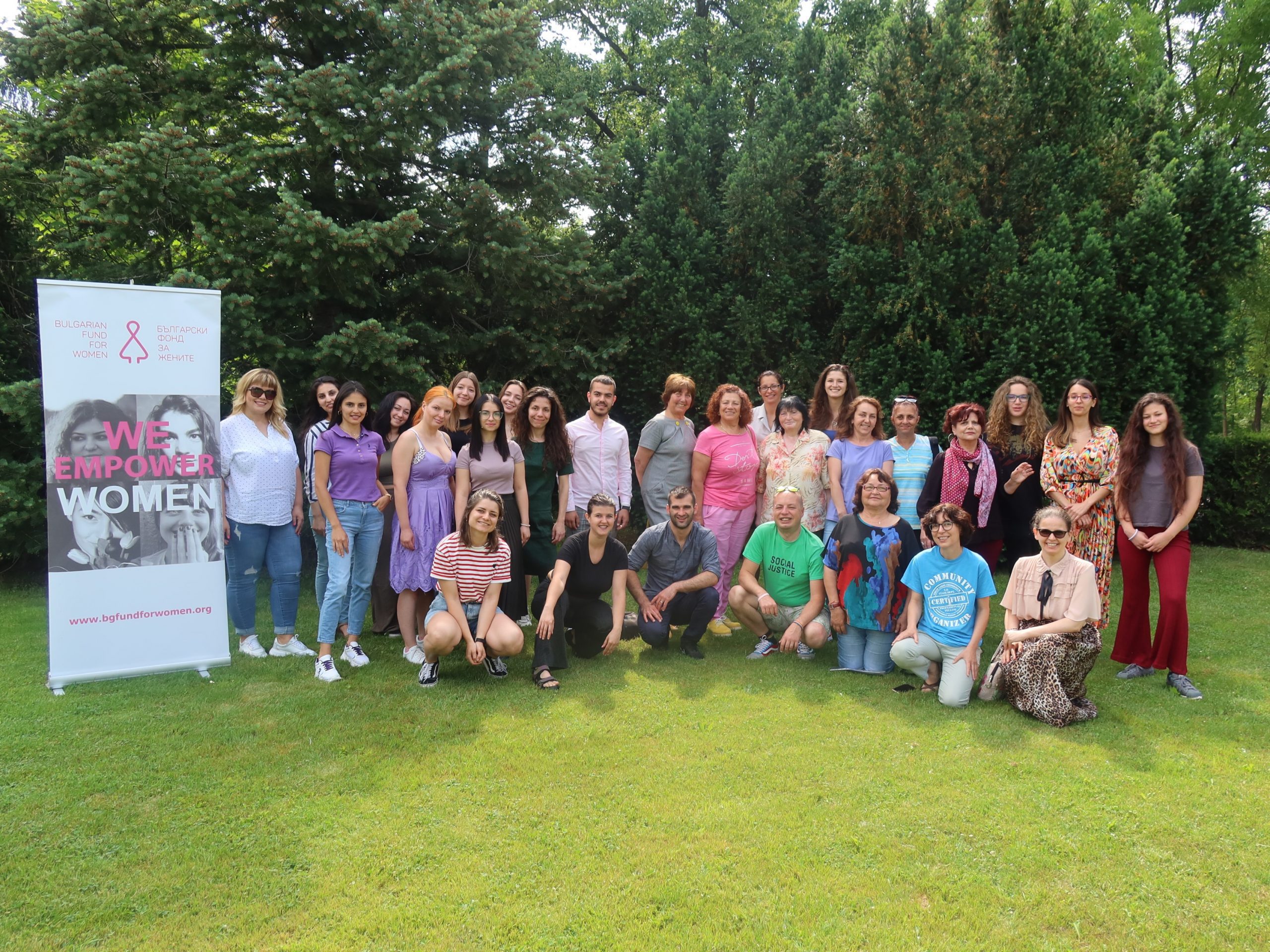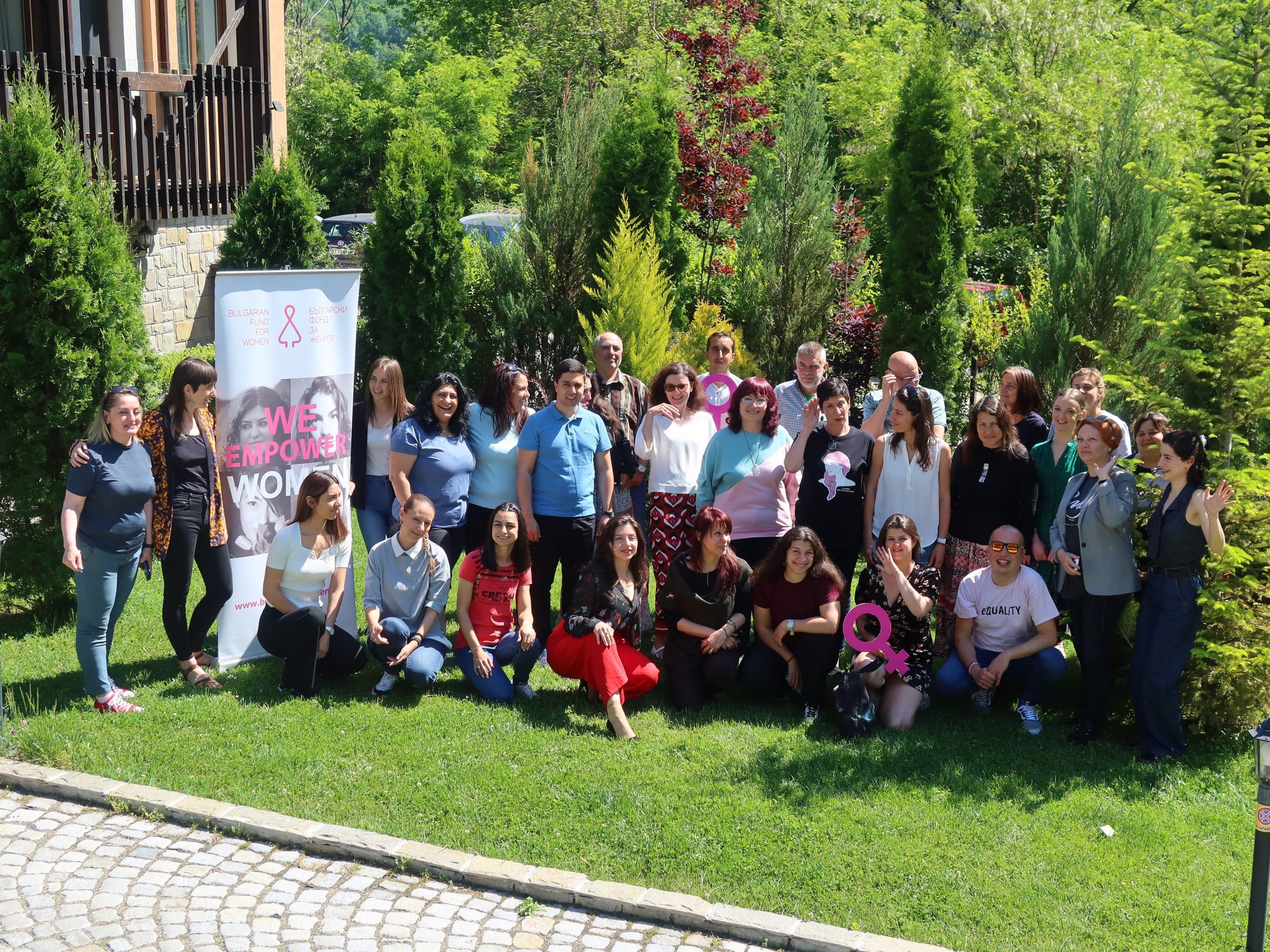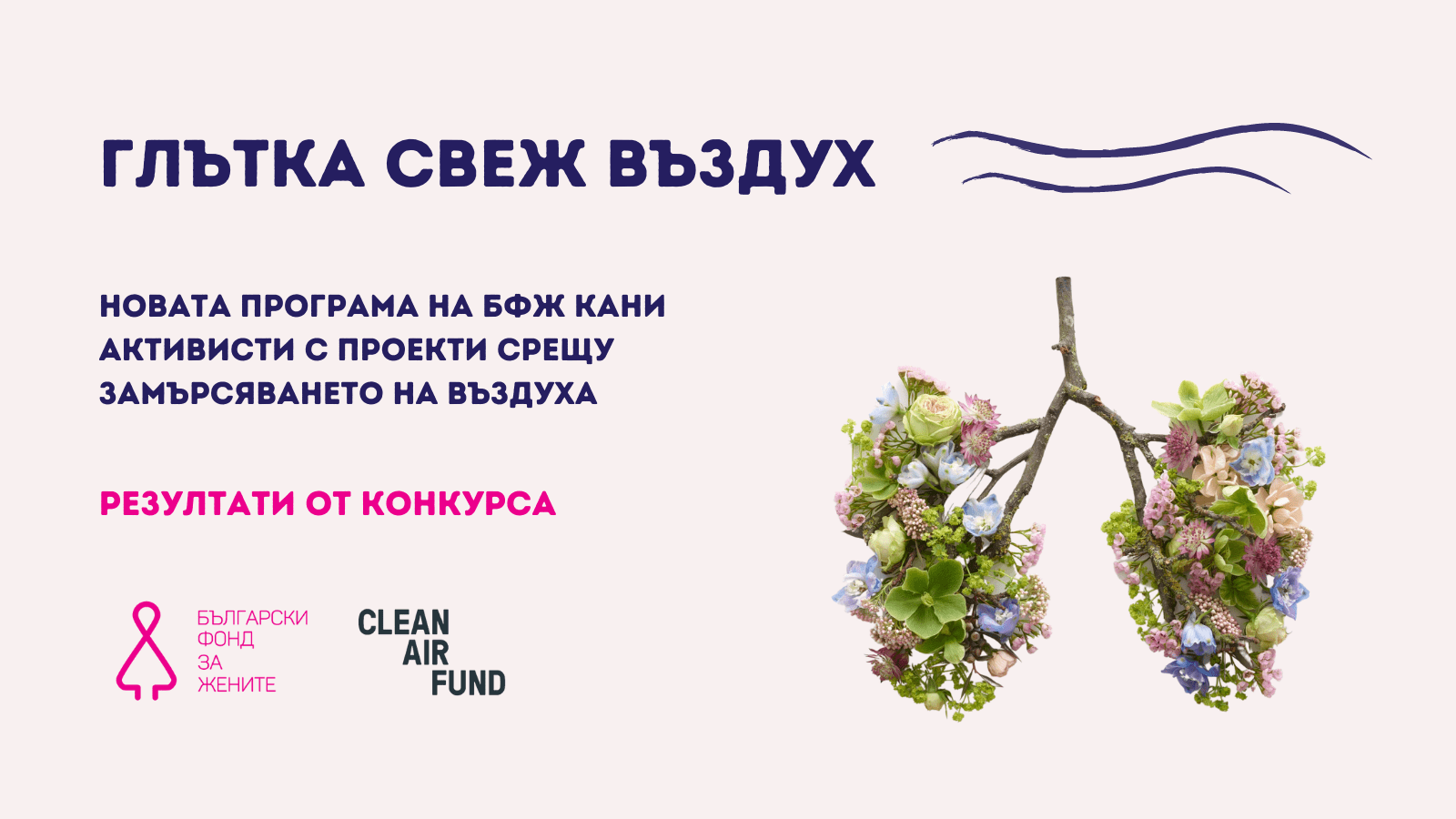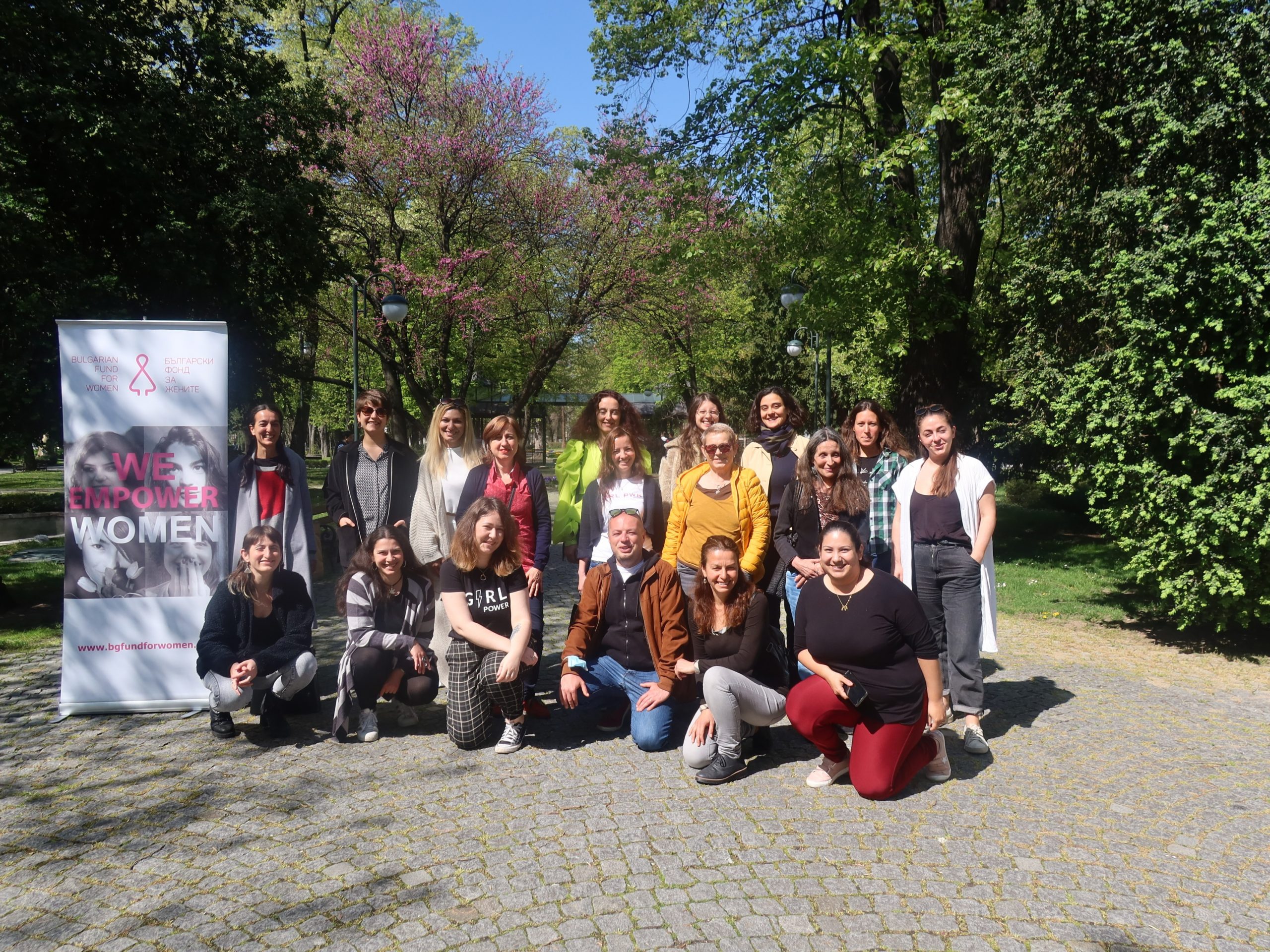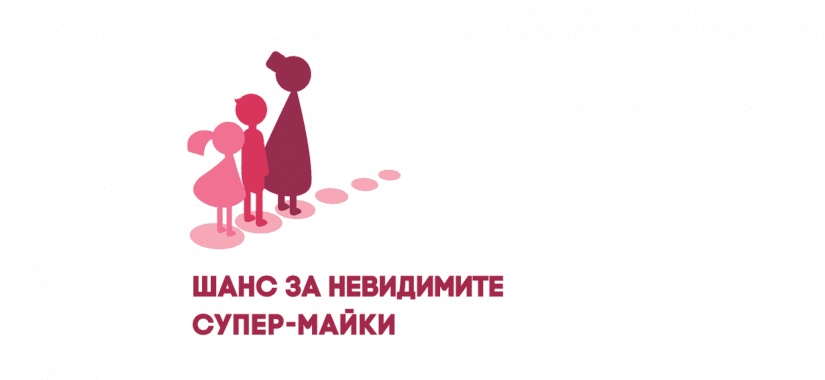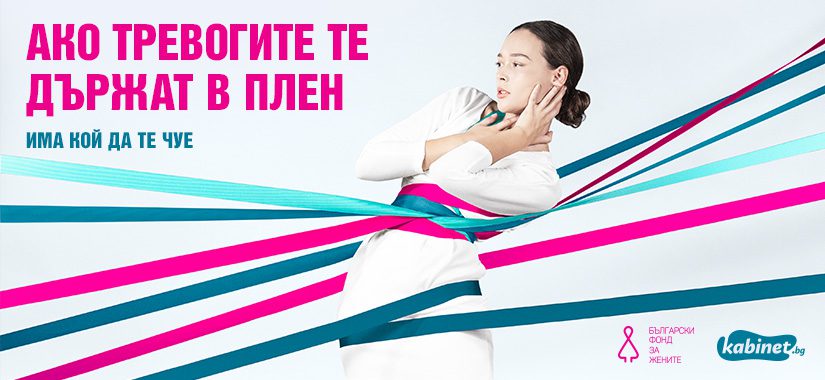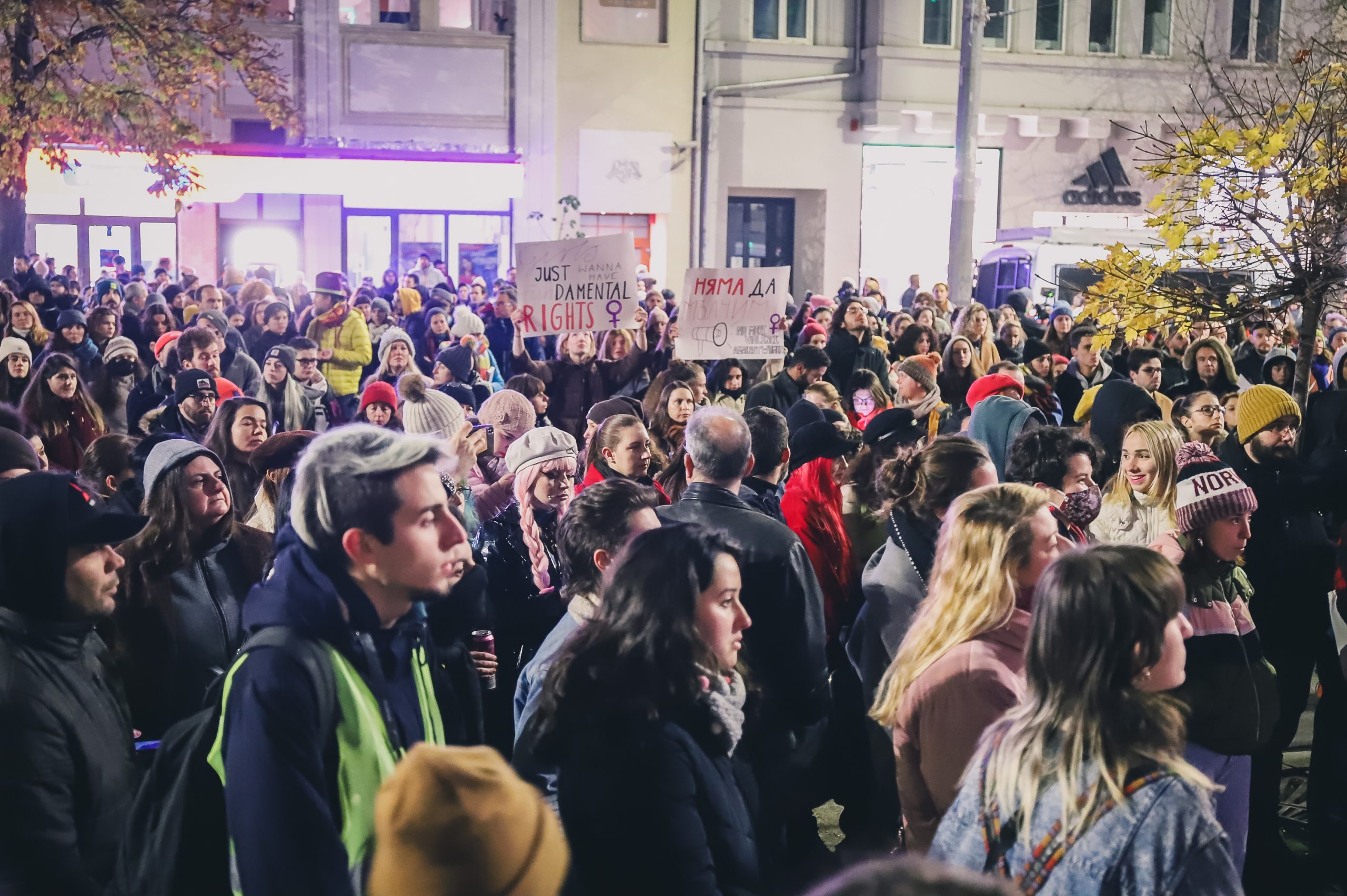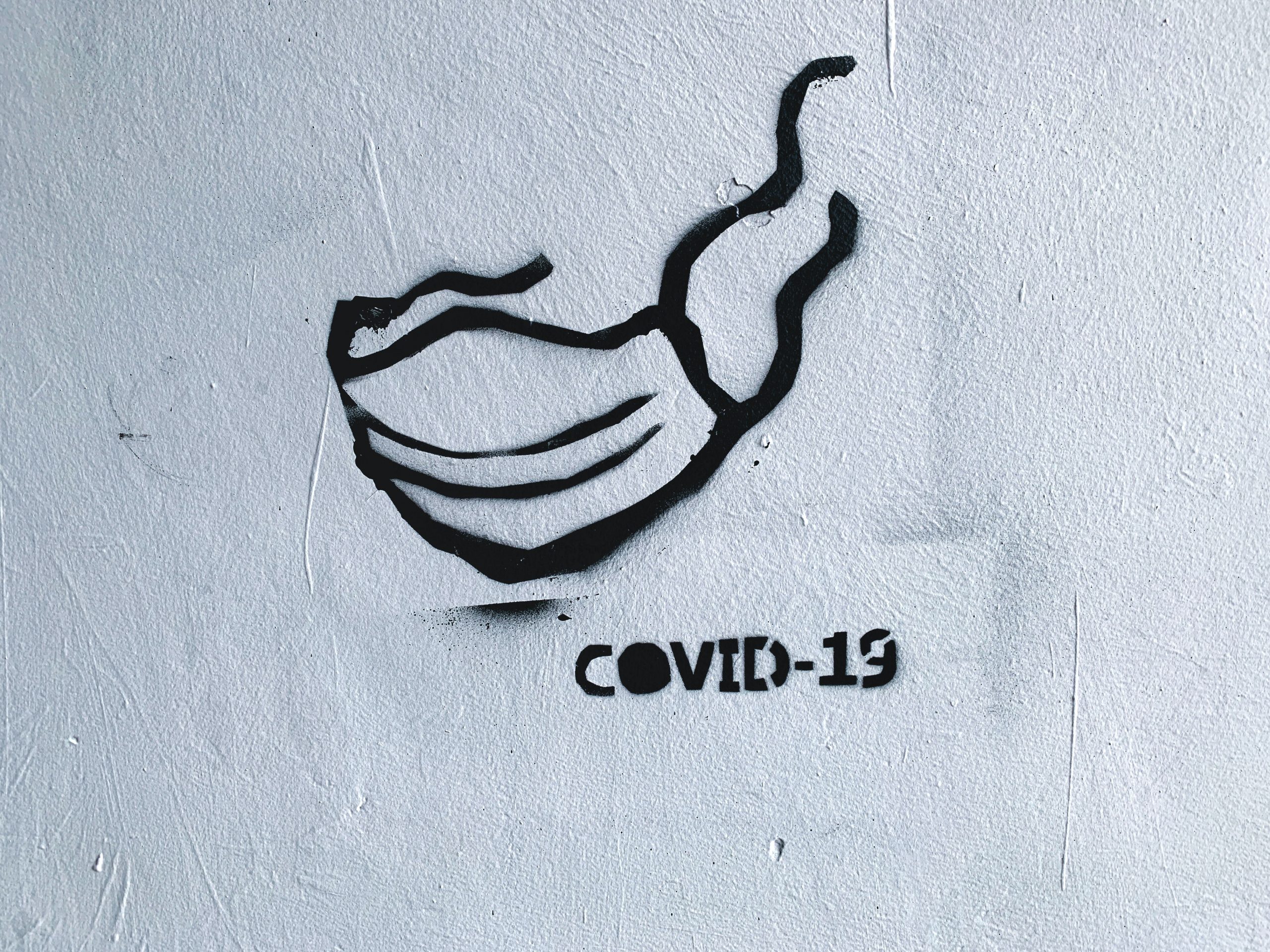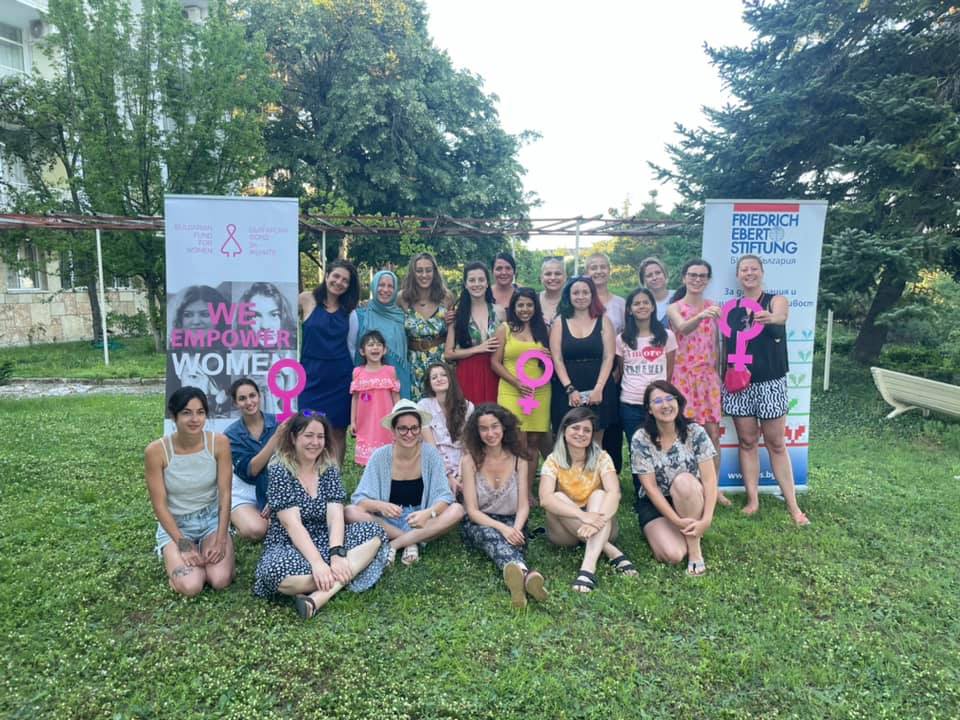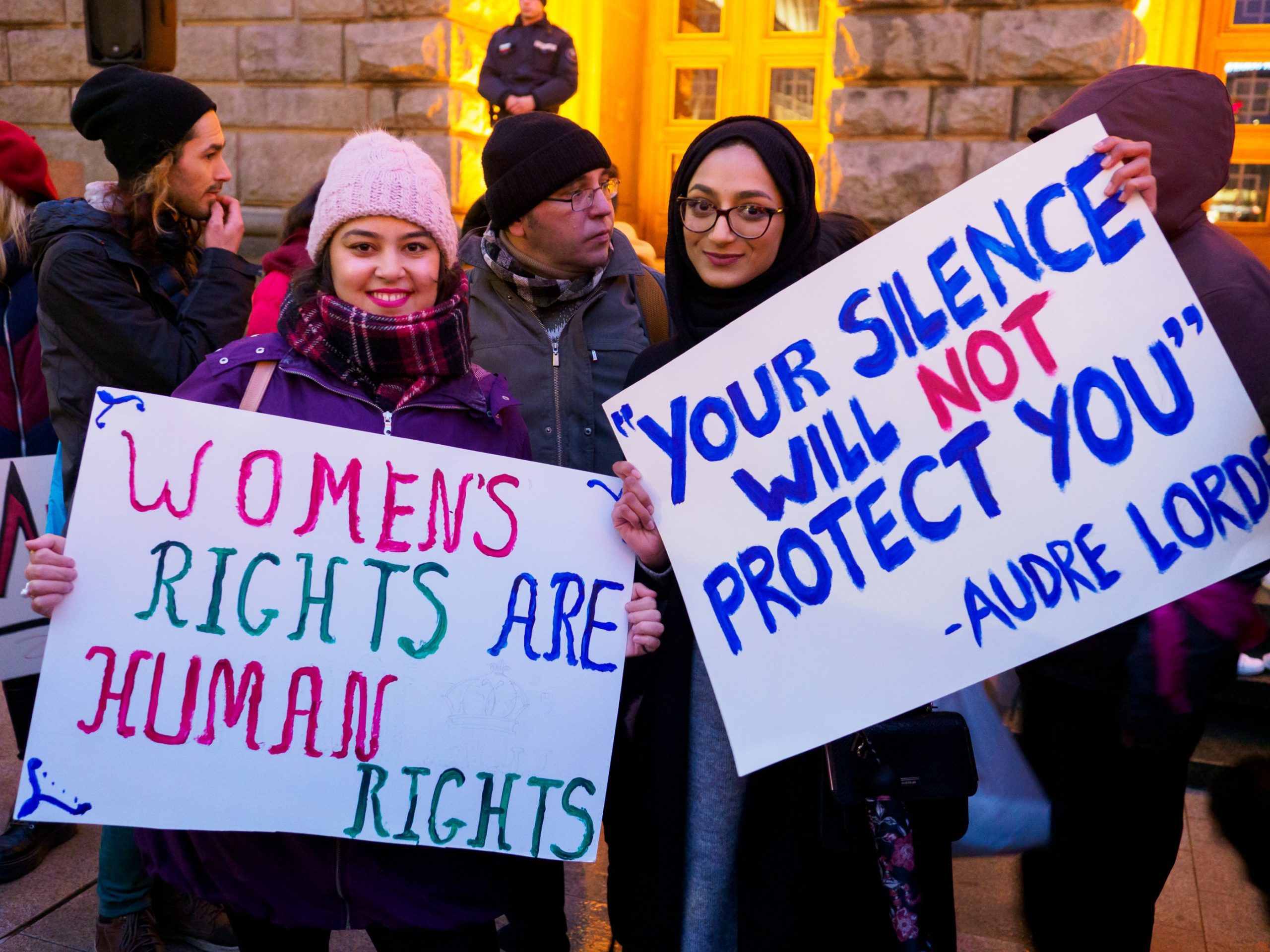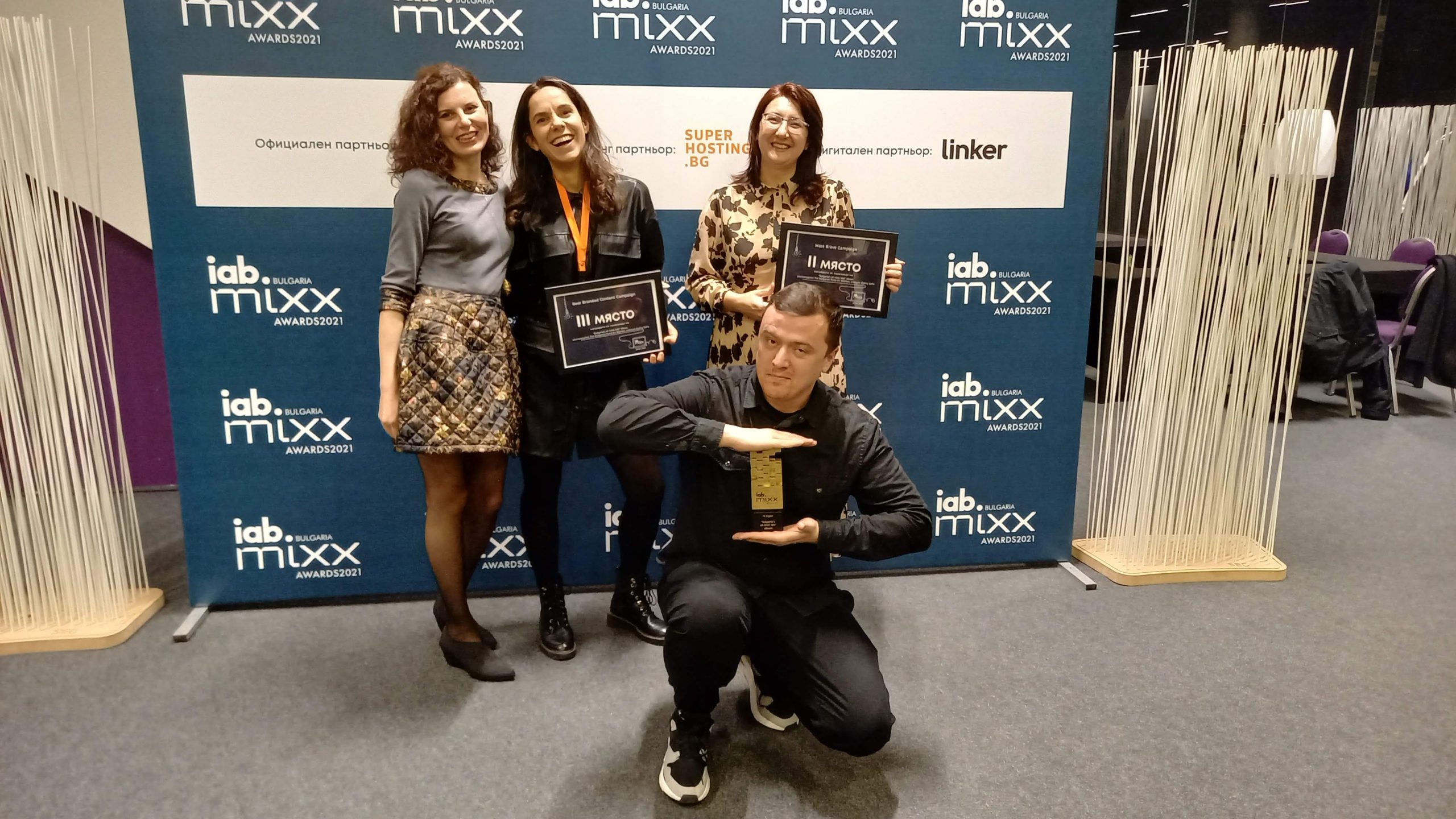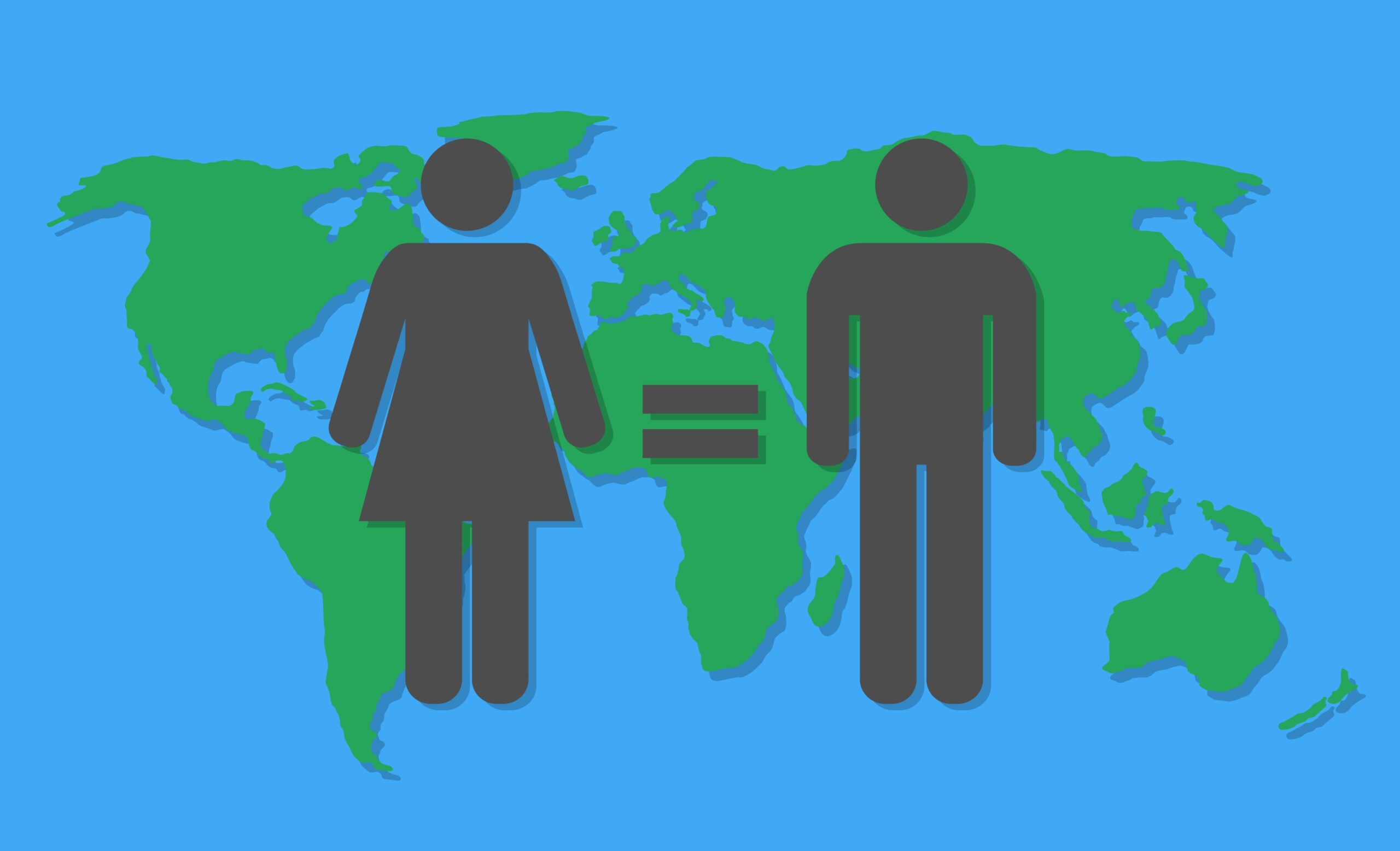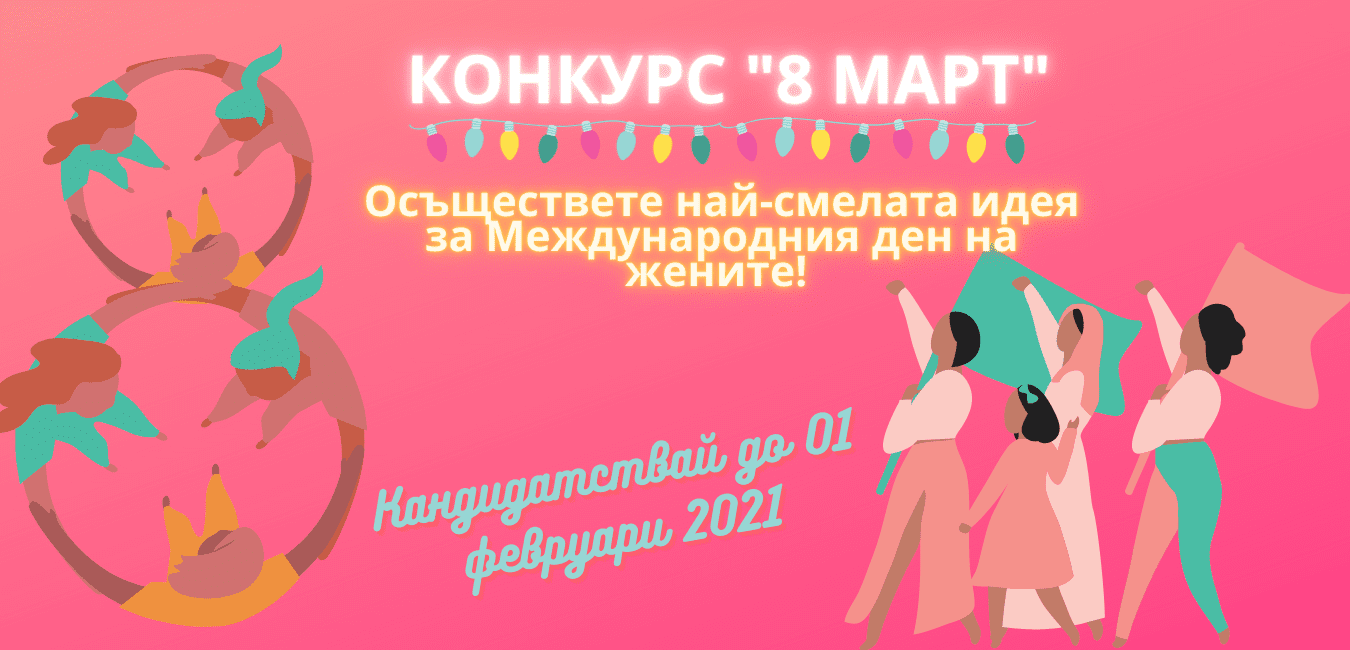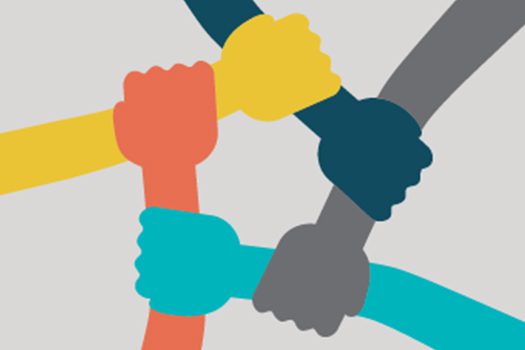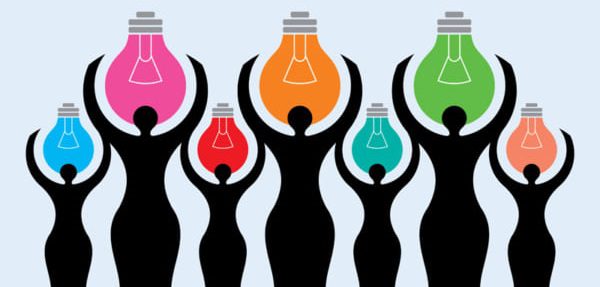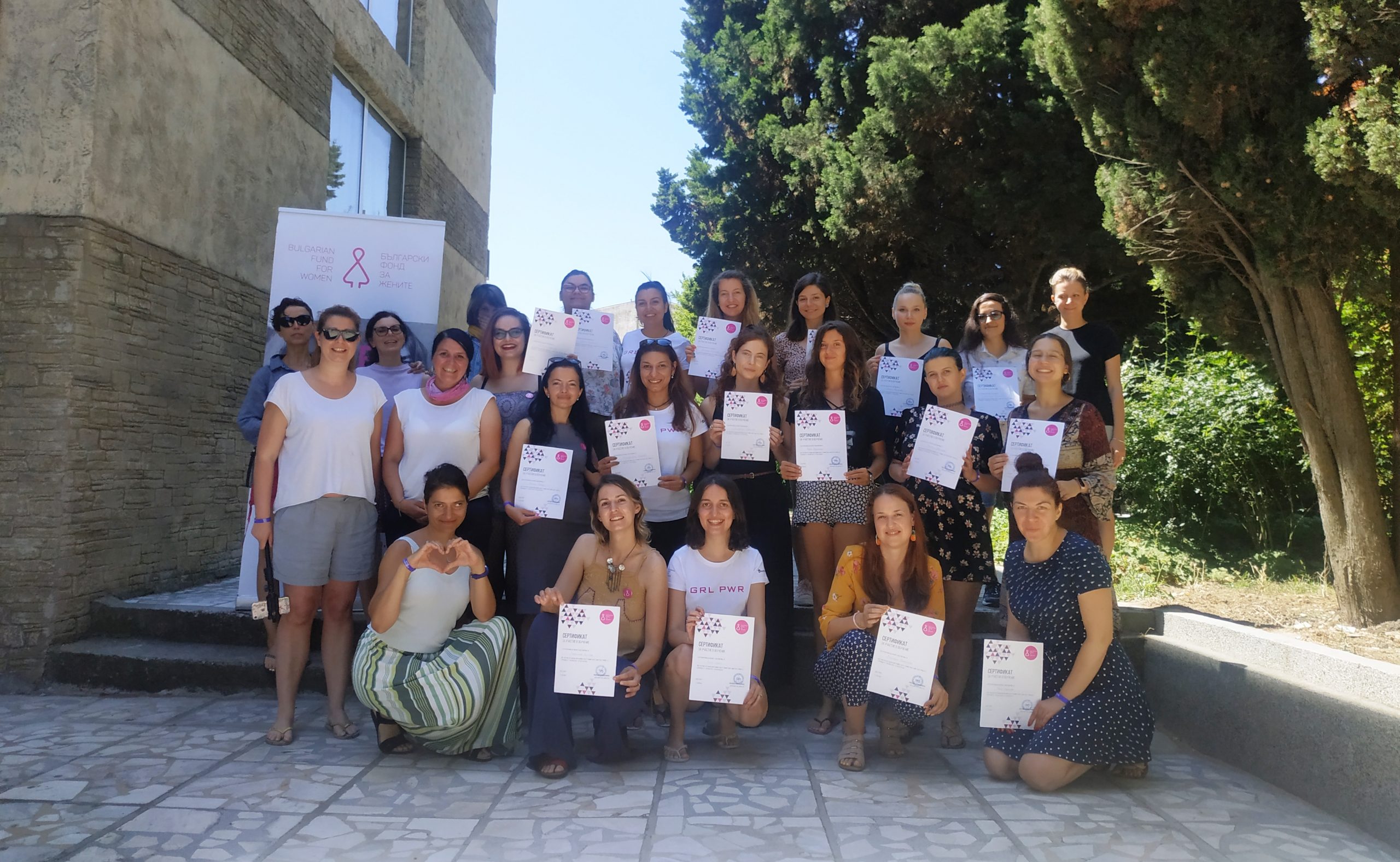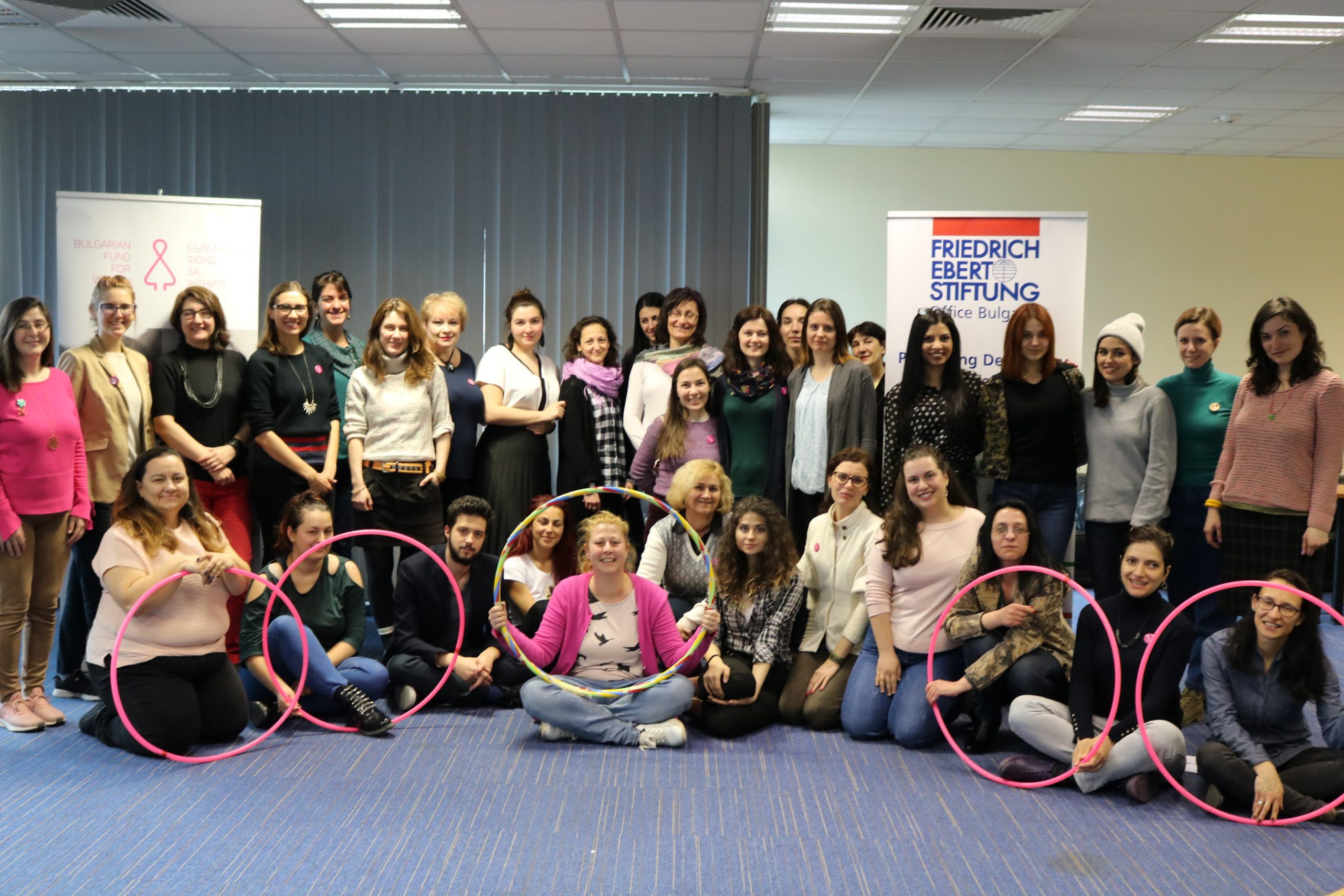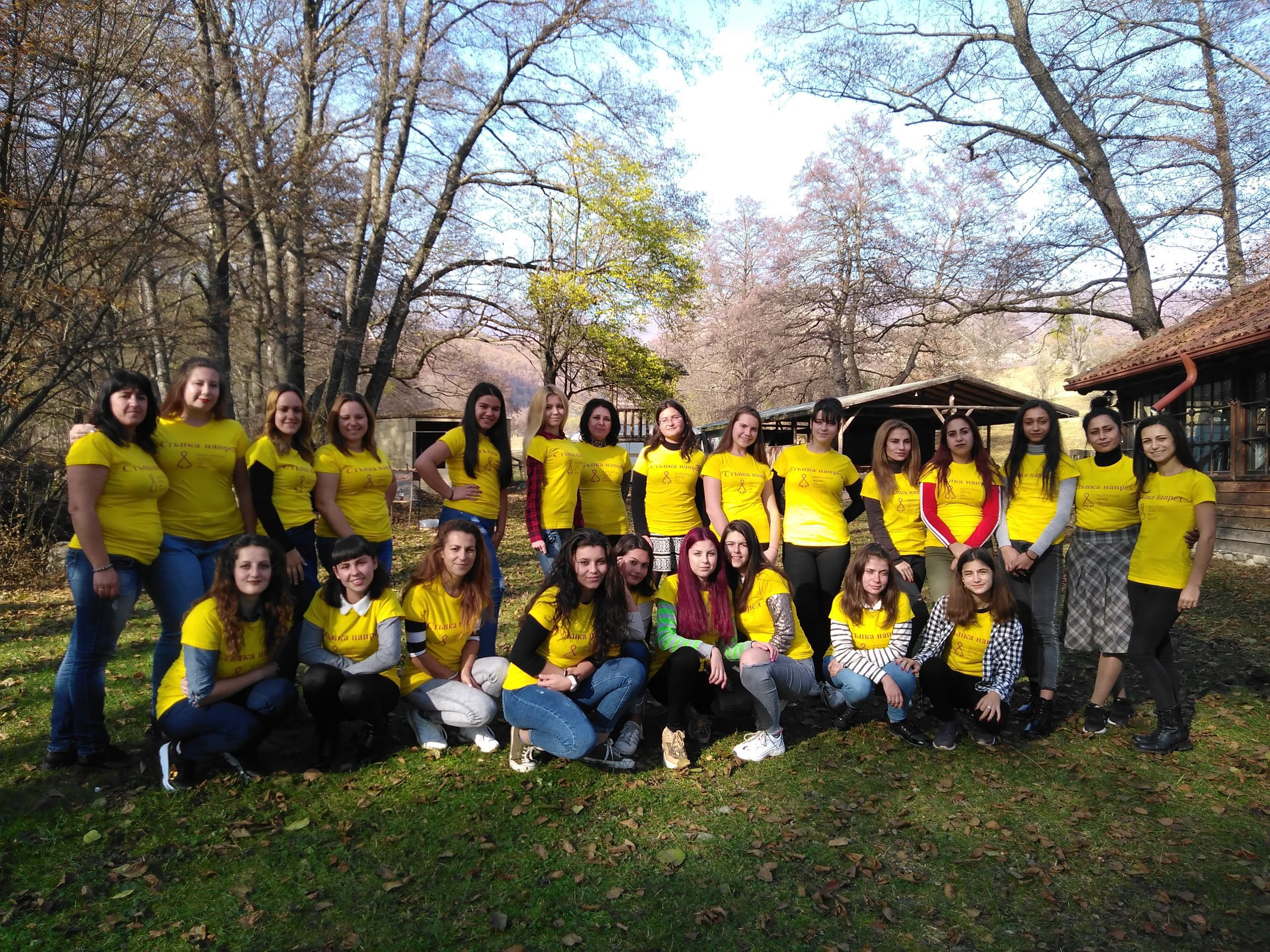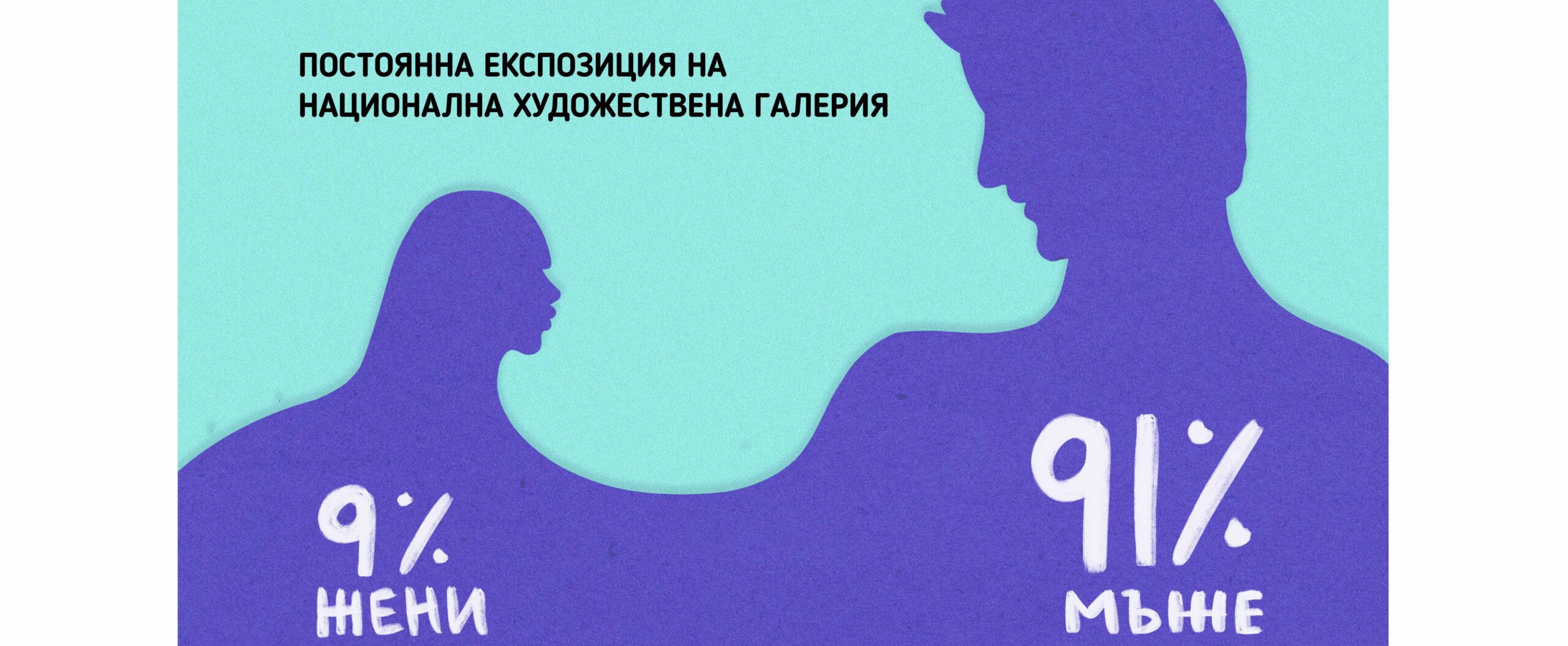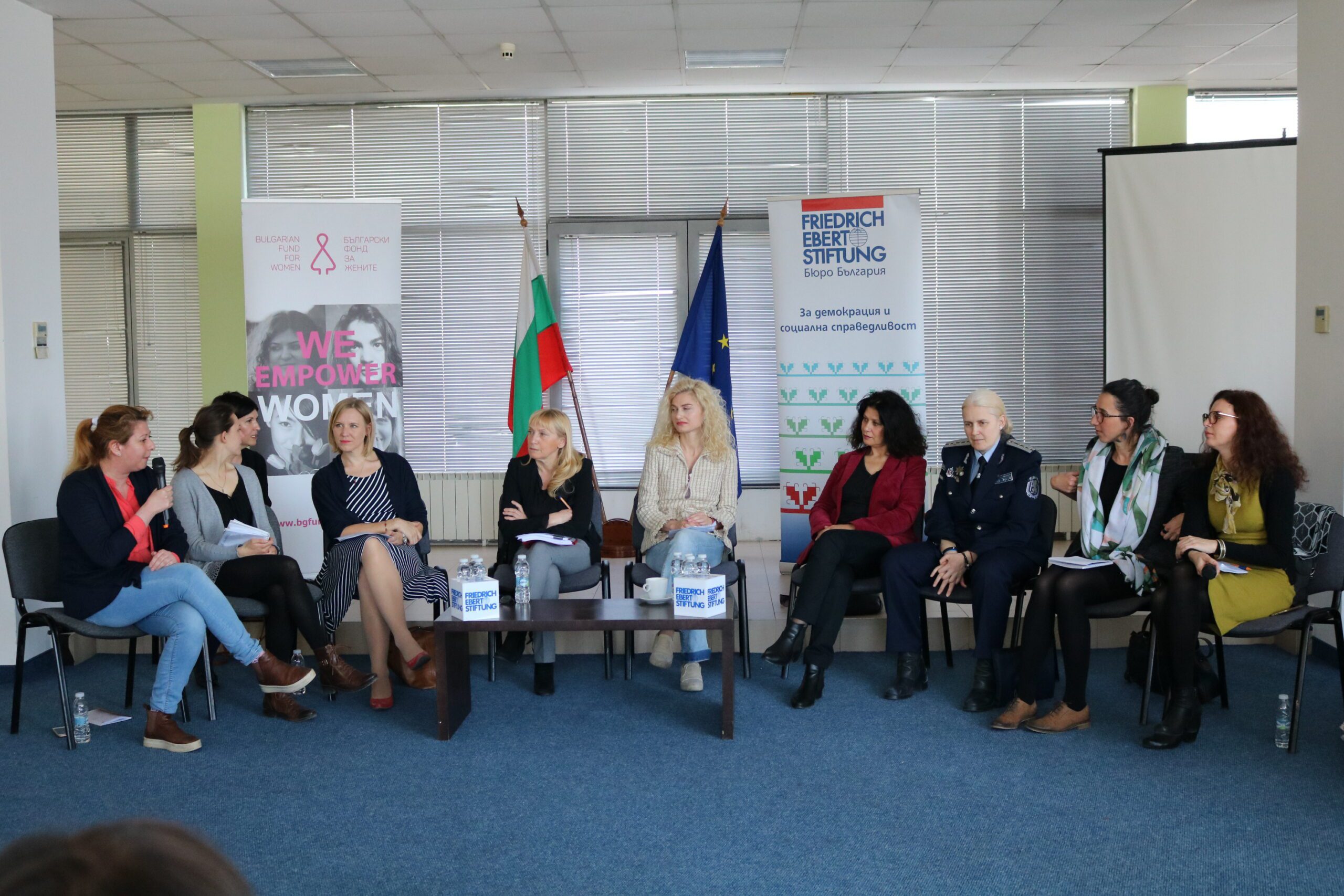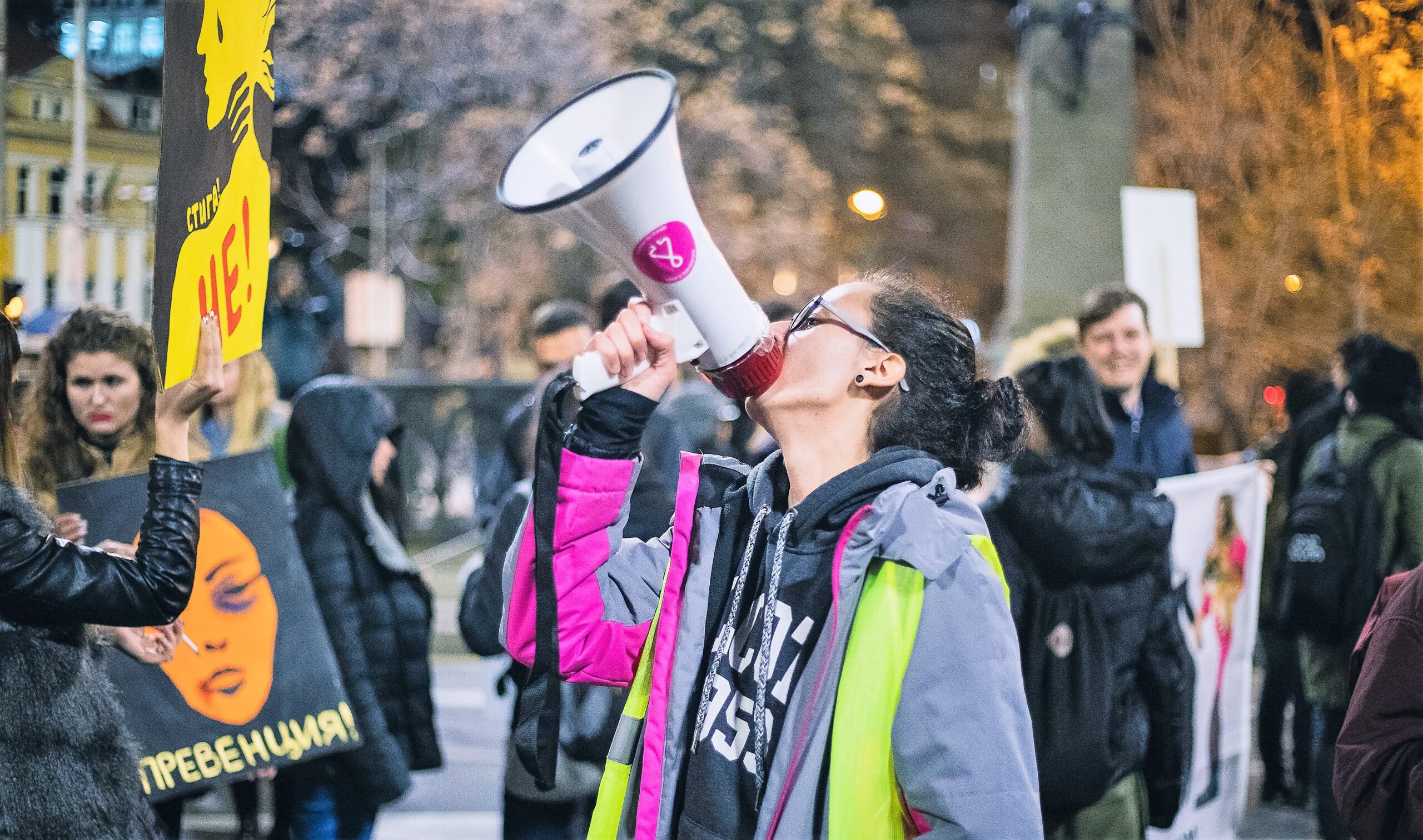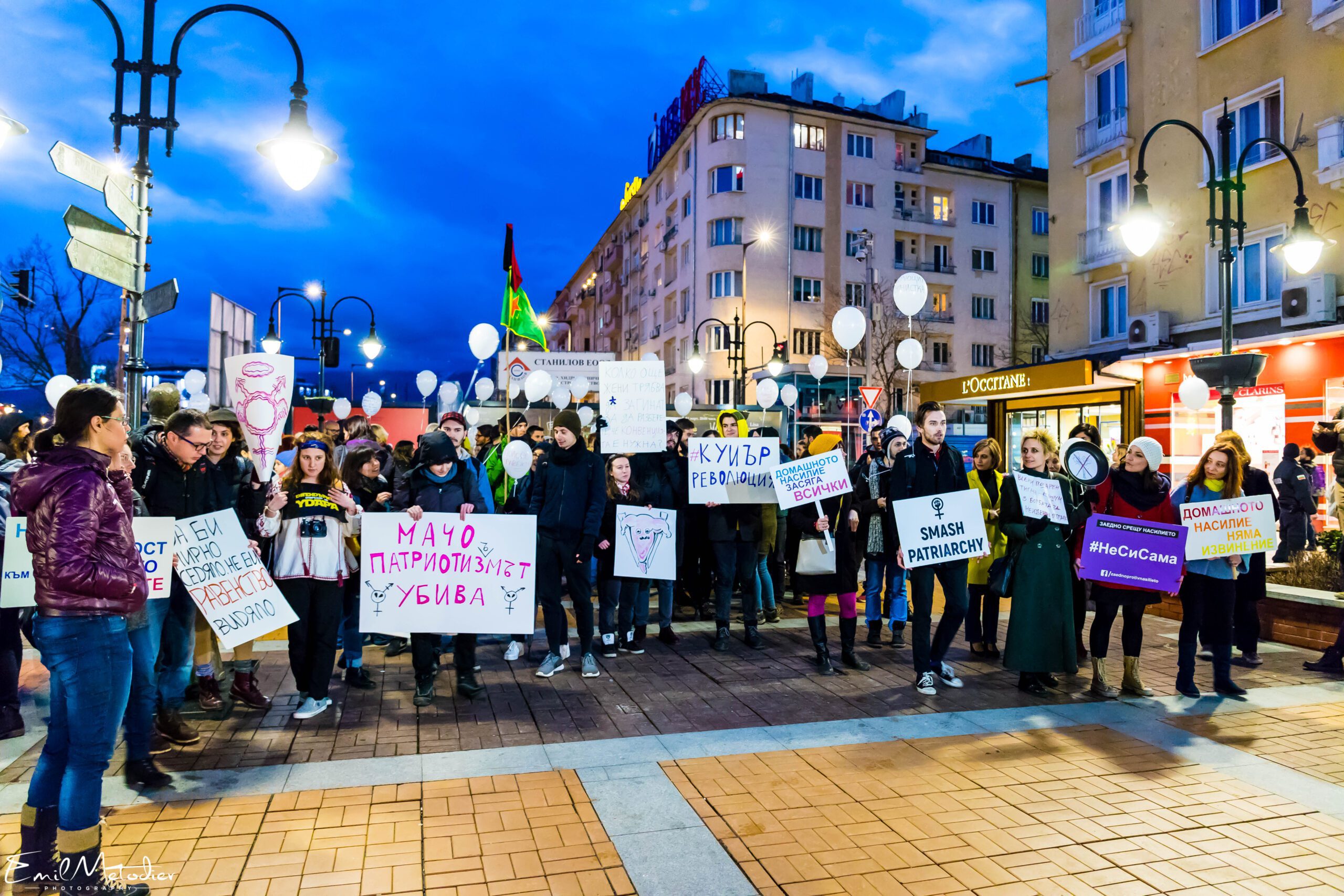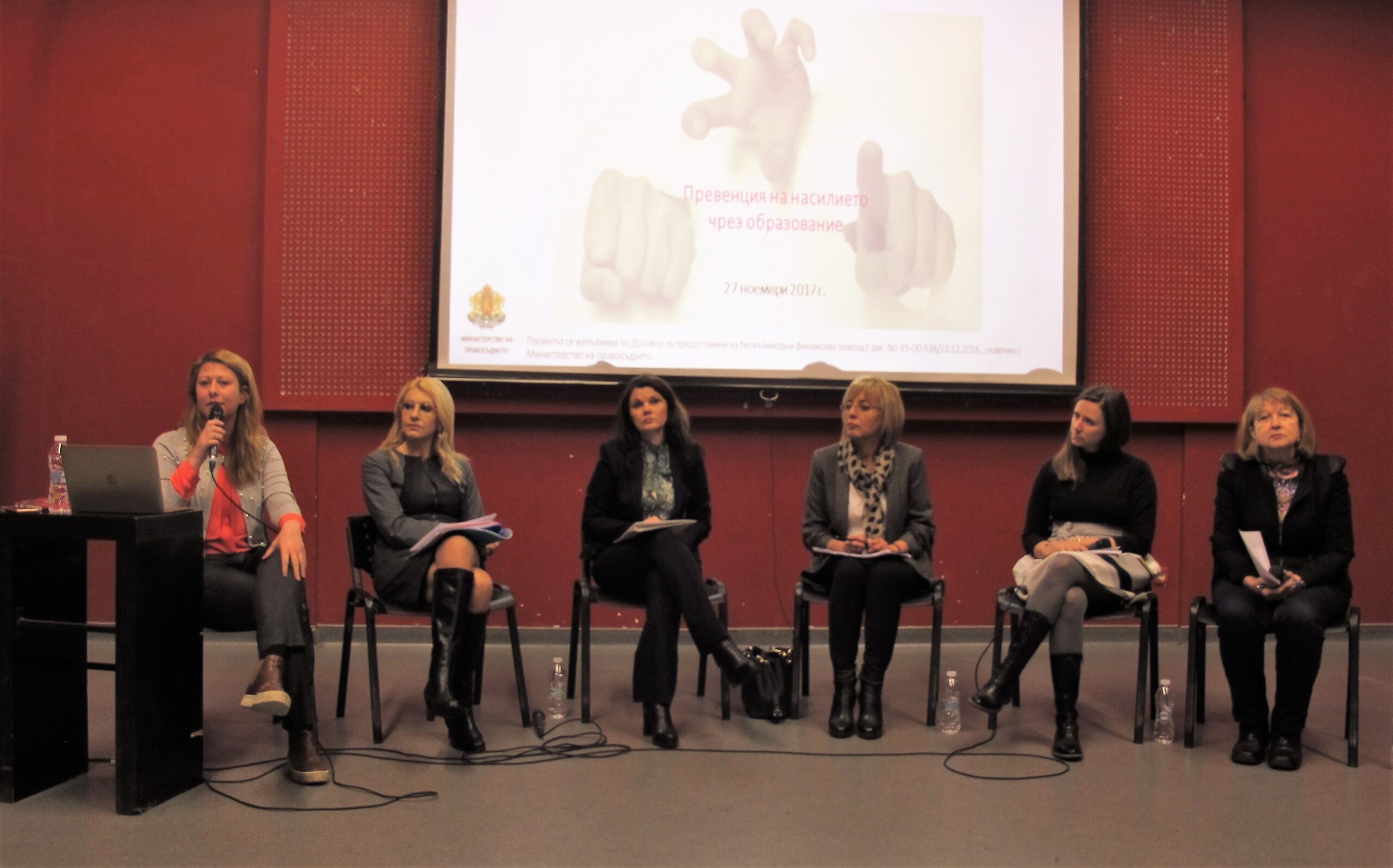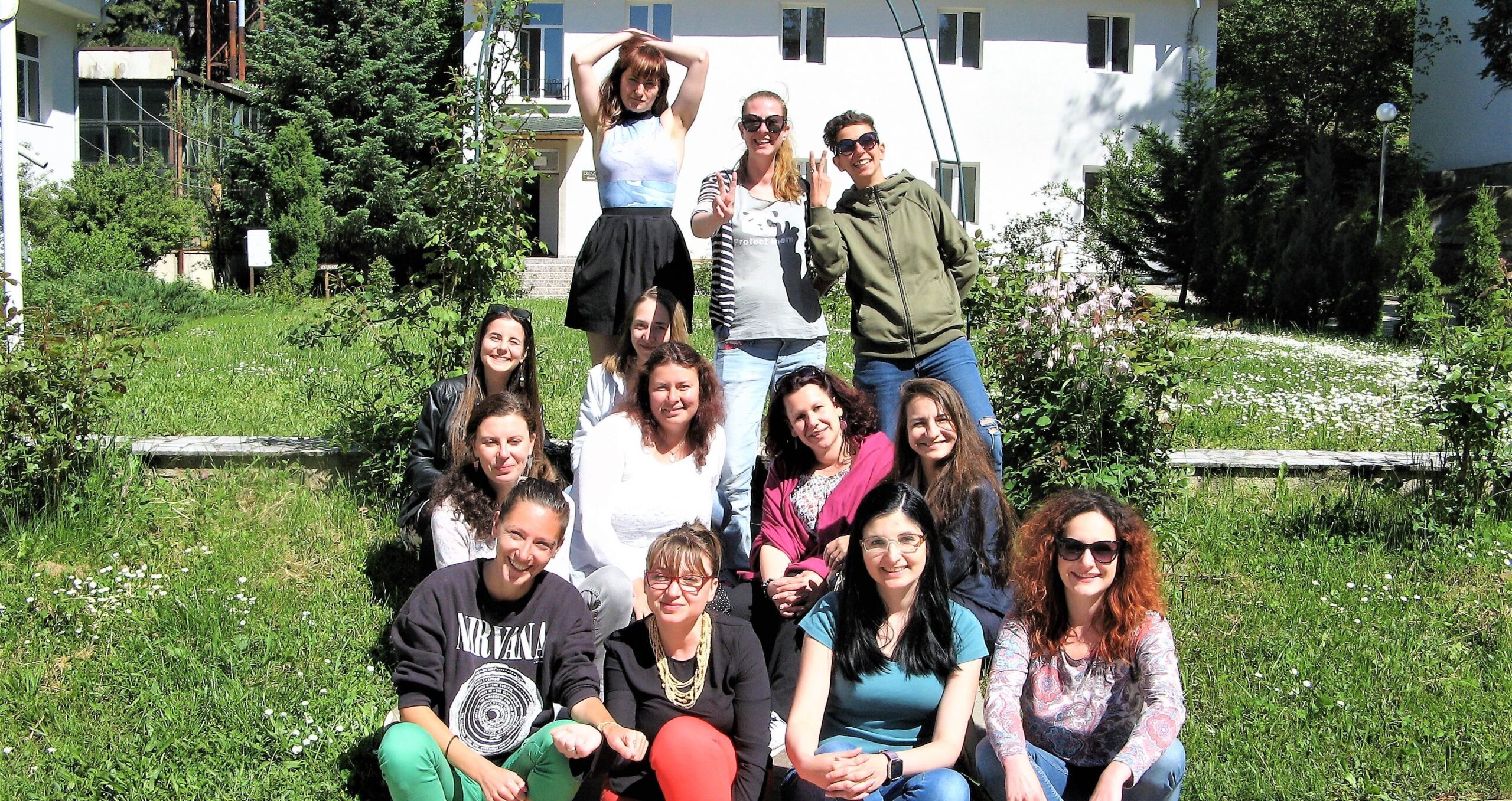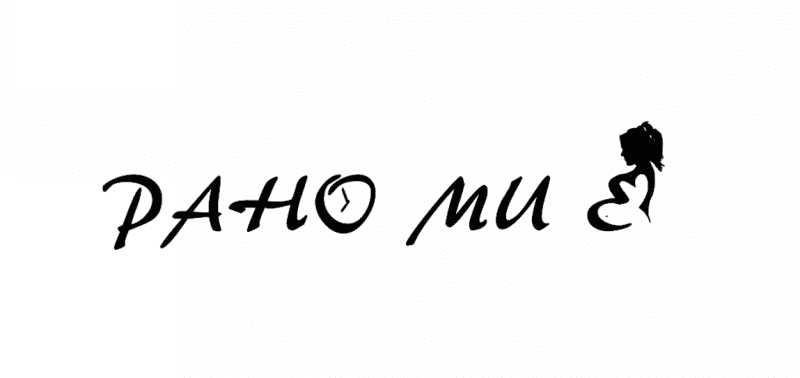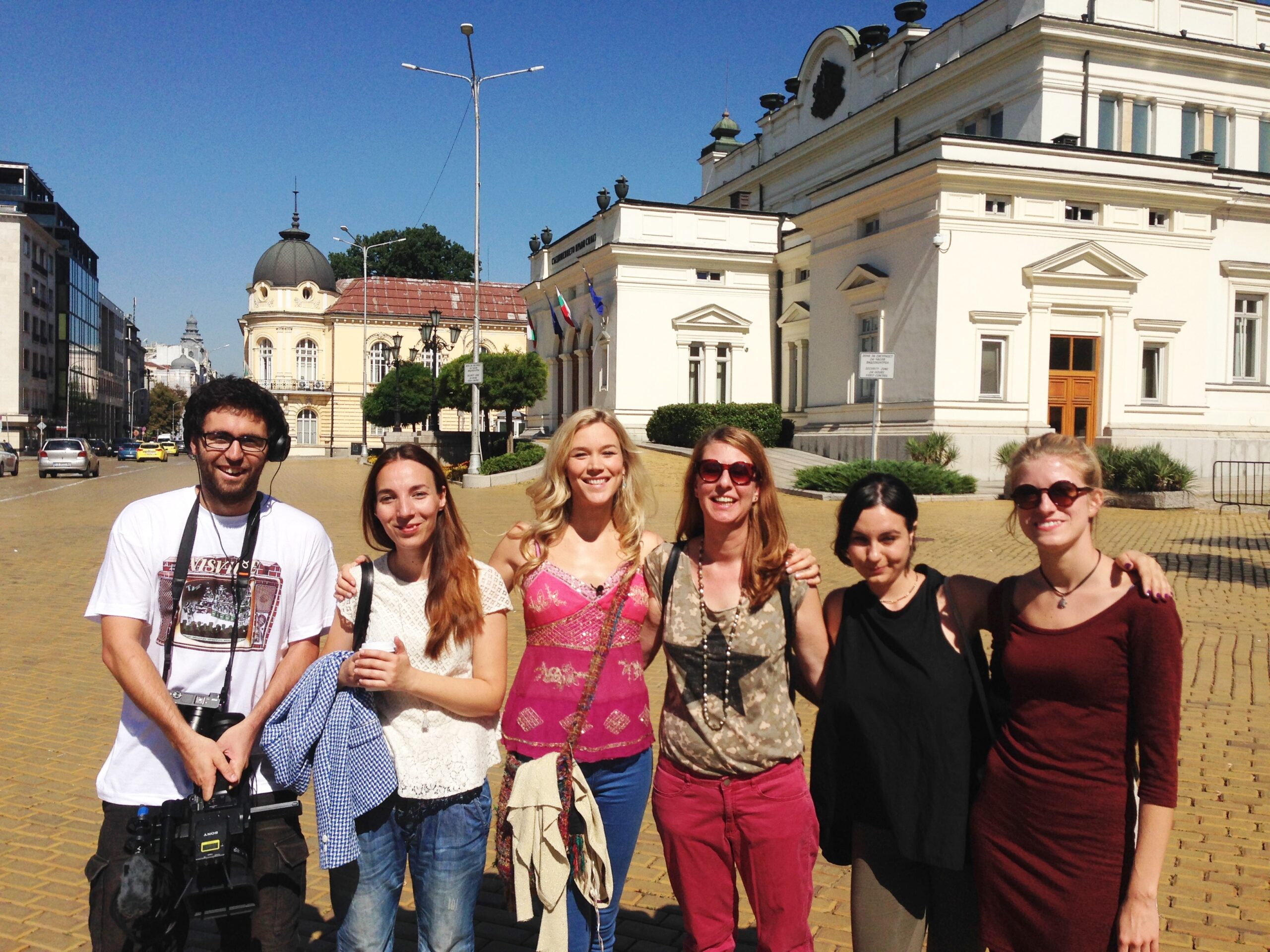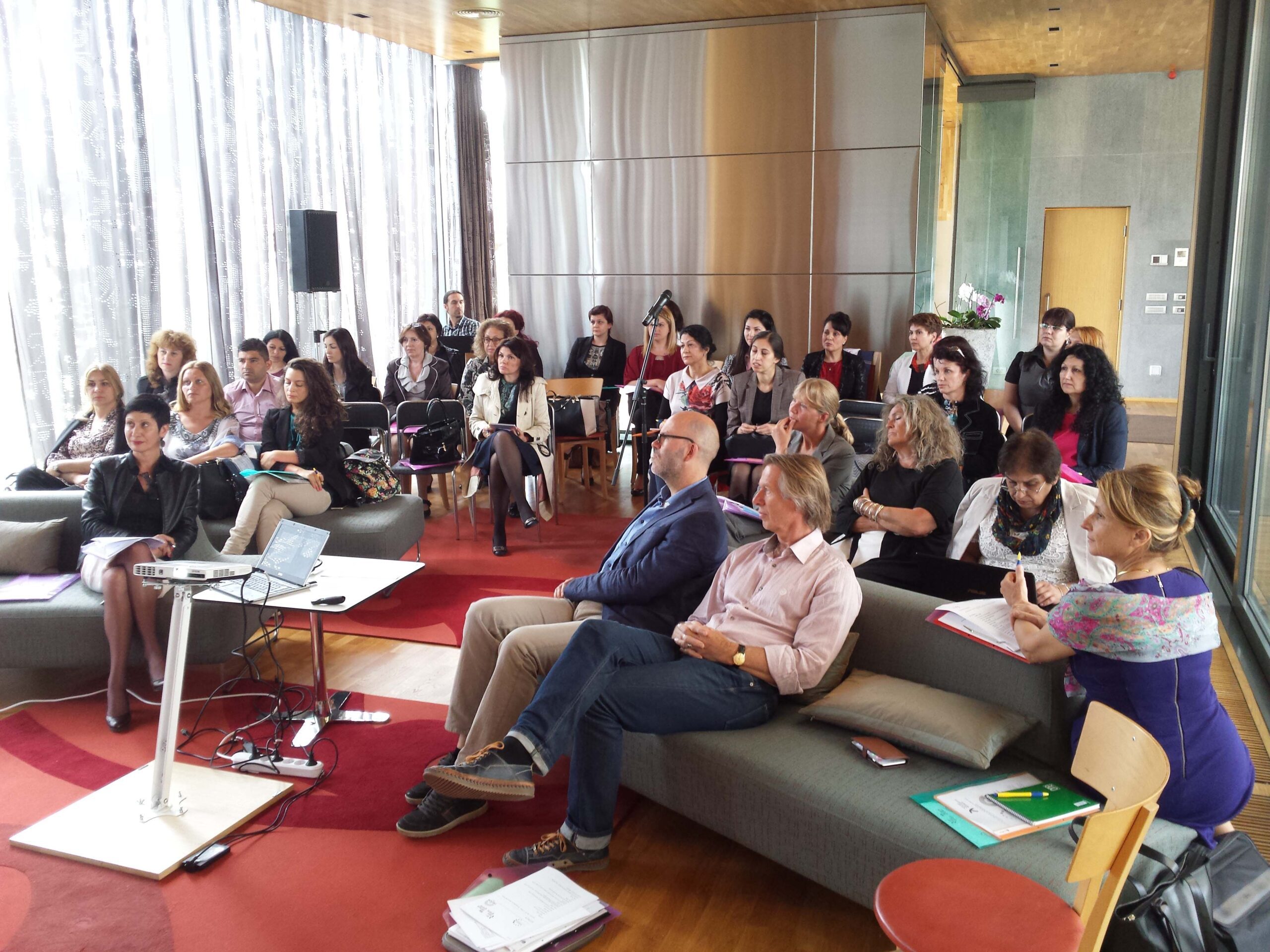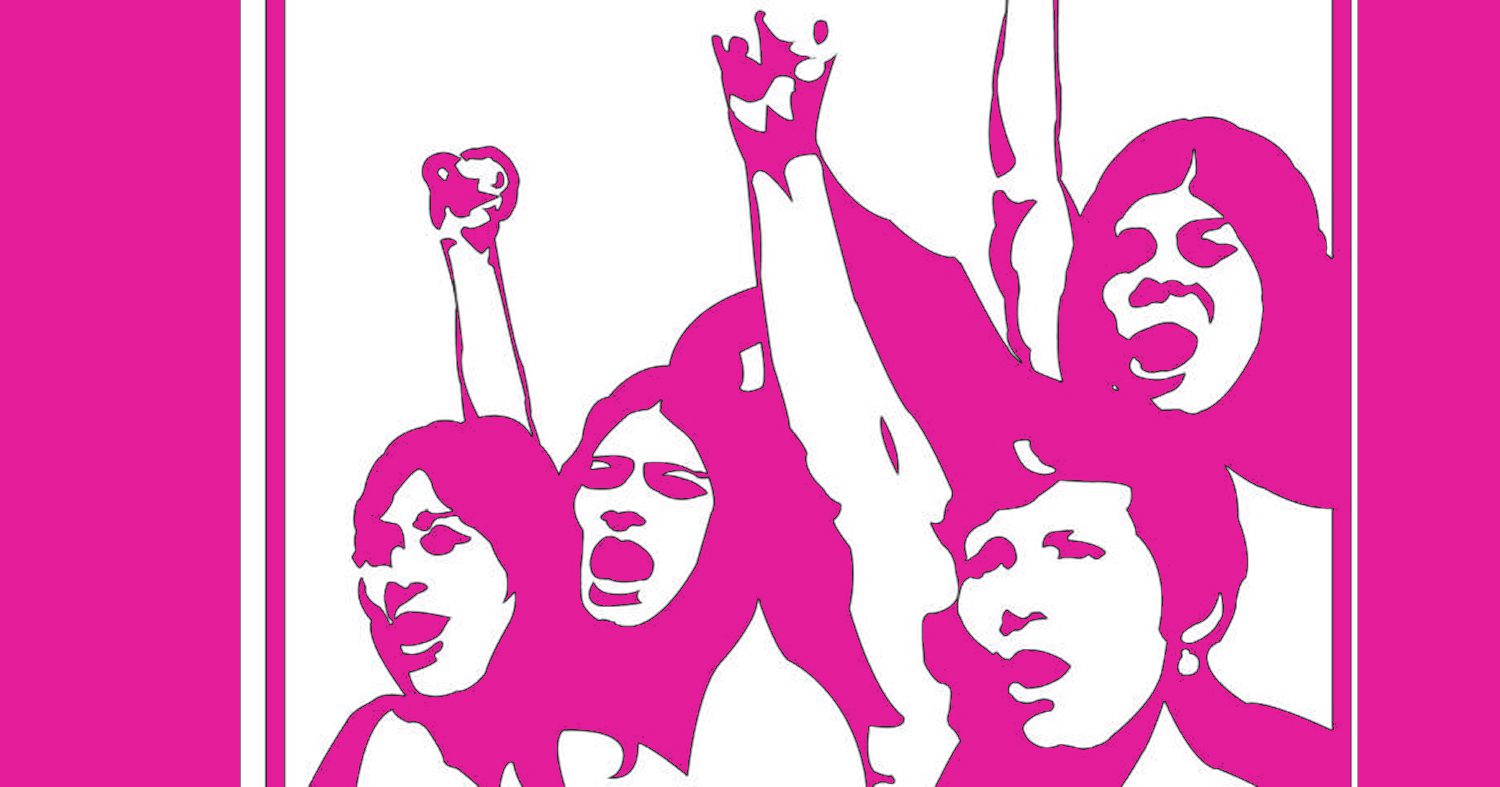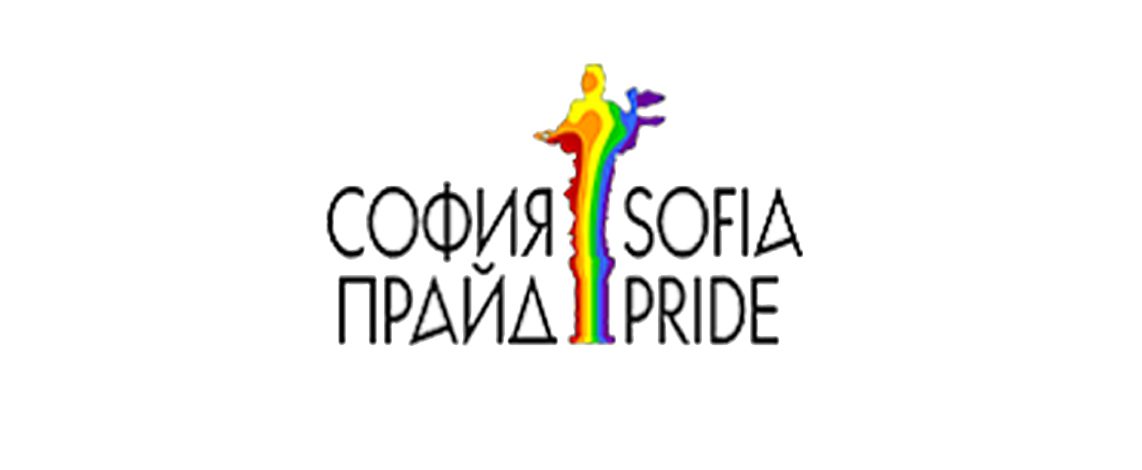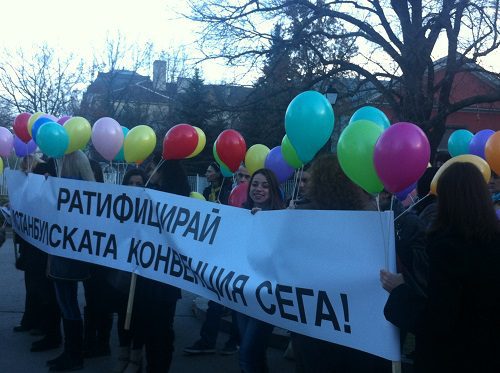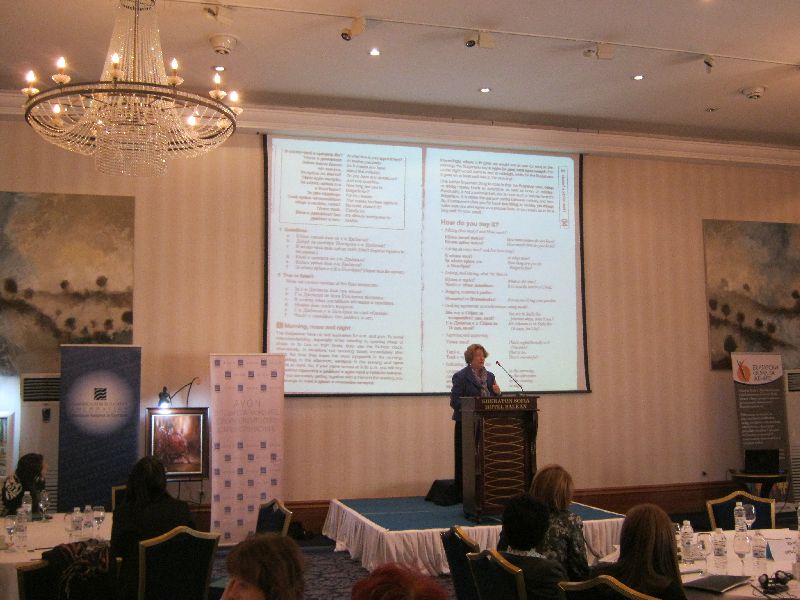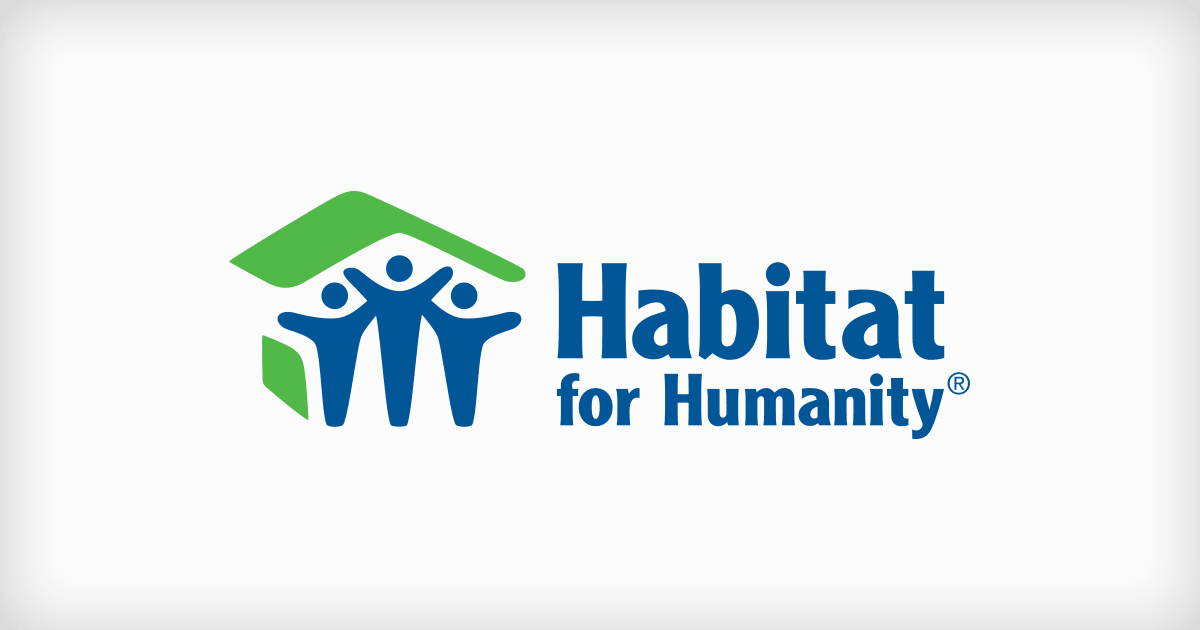The existence of flexible funding is the basis for the resilience of organizations that face intertwining crises, including the COVID-19 pandemic and the war in Ukraine. This is evident from the study “Read Between the Lines”, conducted by an international team and based on in-depth interviews with 67 representatives of women’s and human rights civil society organizations, queer collectives and activists from Bulgaria, Ukraine, Georgia and other countries in the Black Sea region. It was presented by the Bulgarian Fund for Women (BFW), Ukrainian Women’s Fund, Georgian Women’s Fund and Tasso Foundation (Georgia) during a hybrid event in May. The event was opened by the Deputy Ombudsman of the Republic of Bulgaria:
“In the face of [our] institution, you have a supporter in realizing the idea of being a pillar for people when they need support and protection to move forward with their lives so that they do not lose hope and faith. [I wish you] fruitful work because the times demand it from all of us,” stated Mrs. Elena Cherneva-Markova.
“Read Between the Lines” maps the issues, identifies the needs and good practices of organizations, and provides guidelines for formulating policies to support the civil sector and protect vulnerable groups. The report examines both the activities of organizations in the complex context and deteriorating working conditions – from continuous physical threat to negative image, shortage of human resources, and professional burnout, as well as some positive reactions towards the sector such as the wave of solidarity, the formation of voluntary groups and their professionalization.
Among the main recommendations of “Read Between the Lines” are the rethinking of the model of one-off funding in the event of humanitarian crises and the adoption by more donors of a model of flexible support for organizational and administrative costs (so-called core funding), allowing organizations to determine their priorities in accordance to their needs, as well as the introduction of simplified application and reporting systems and the provision of state funding for women’s funds in the region. The report also highlights the need for organizations to invest efforts in developing advocacy and lobbying, collecting and analyzing data, building networks of supporters.
“Since 2018, BFW has been researching the needs of Bulgarian organizations working for the rights of women, girls and marginalized groups, and with the current research, we are also documenting the experiences and problems of organizations from the Black Sea region because we find many similarities in the contexts. From the shrinking space for the civil sector, through attempts for attacks from the highest level,” shared Nadejda Dermendjieva, director of the BFW.
In one of the discussions, Kamelia Dimitrova from the “Dignita” Foundation and Nadejda Rangelova from the “For the Good” Foundation – two non-governmental organizations working with Ukrainian citizens and participating in the research, which the BFW supported via the Urgent Fund for Women and Children Affected by the War, shared about their experience at the front line. They talked about the challenges they face including working on a project basis, continuous attempts to discredit those working in the sector and the deepening and complex needs of the victims. They emphasized the important role of civil society organizations in recognizing and addressing the multiple dimensions of crises that remain unaddressed by the state, such as the increased levels of gender-based violence in cases of refugee waves and the increased risk for Ukrainian nationals of exploitation and human trafficking.
Learn more about their experience in the full version of the study “Read Between the Lines” HERE (in Bulgarian) and HERE (in English).
During the event, representatives of BFW (in the role of a leading organization), the Ukrainian Women’s Fund, the Georgian Women’s Fund and the Tasso Foundation discussed their efforts in recent years to promote feminist philanthropy based on the principles of solidarity, tolerance, European values and helping to remove power hierarchies in the funding models.
The project “Read Between the Lines: (Post)pandemic Economic Consequences for Civil Society Organizations Working in the Field of Women’s Rights from Bulgaria, Georgia and Ukraine” is funded by the Black Sea Trust for Regional Cooperation under the initiative of the German Marshall Fund of the United States and co-financed by the European Commission. The views expressed in this publication do not necessarily represent those of the Black Sea Trust or its partners.


